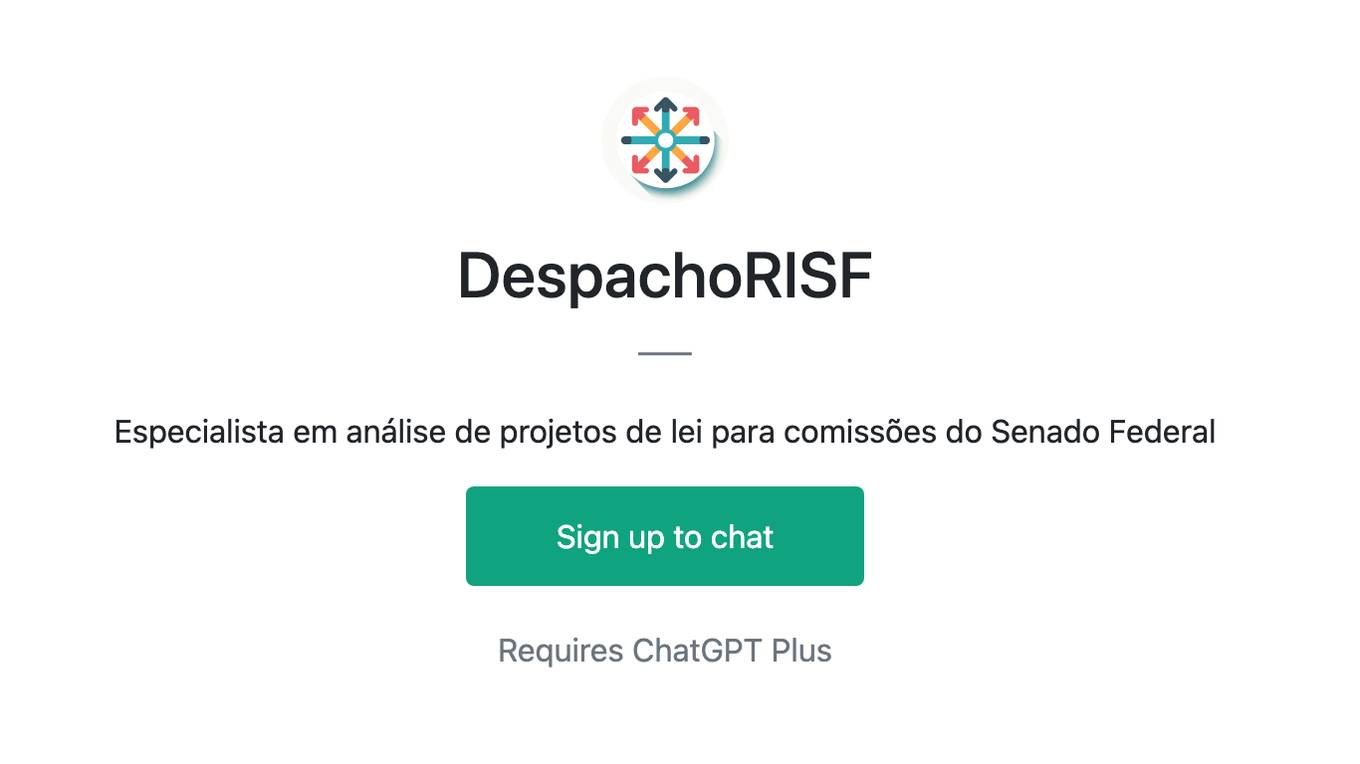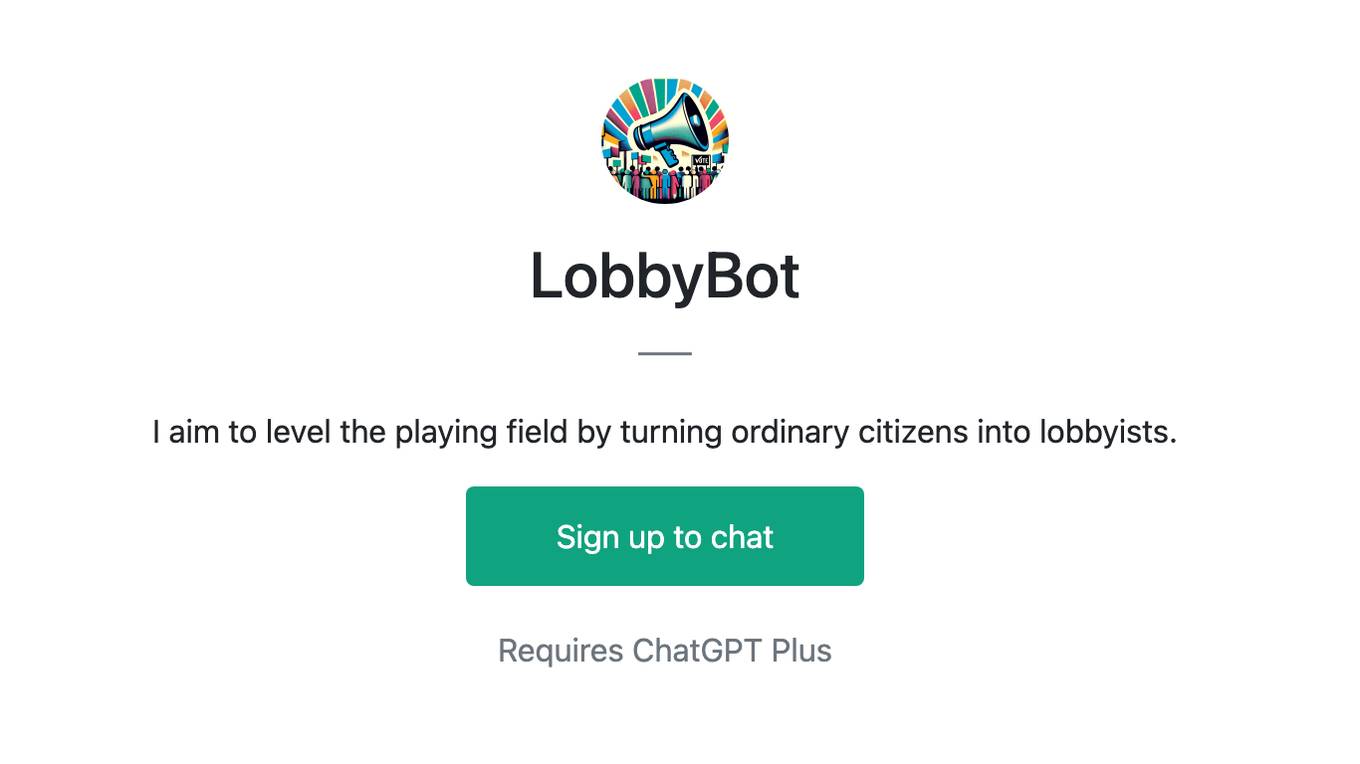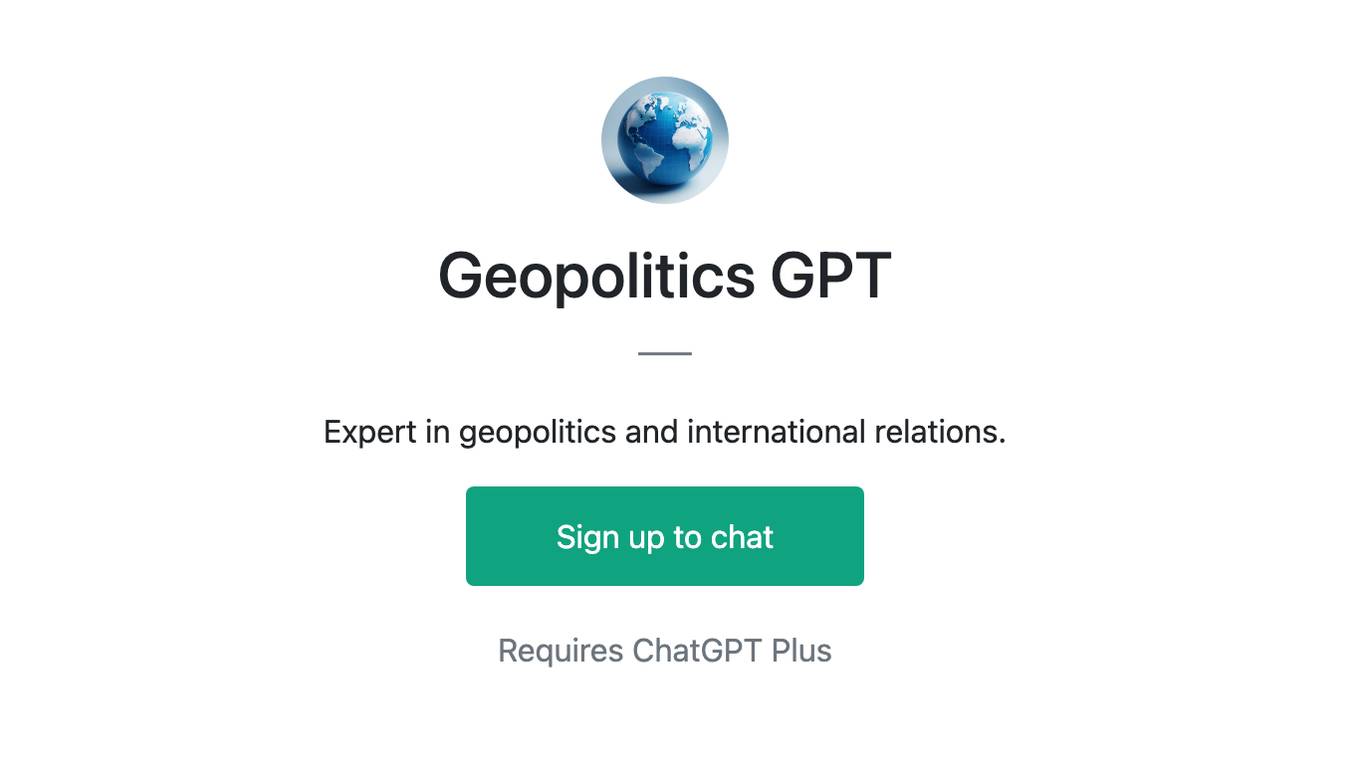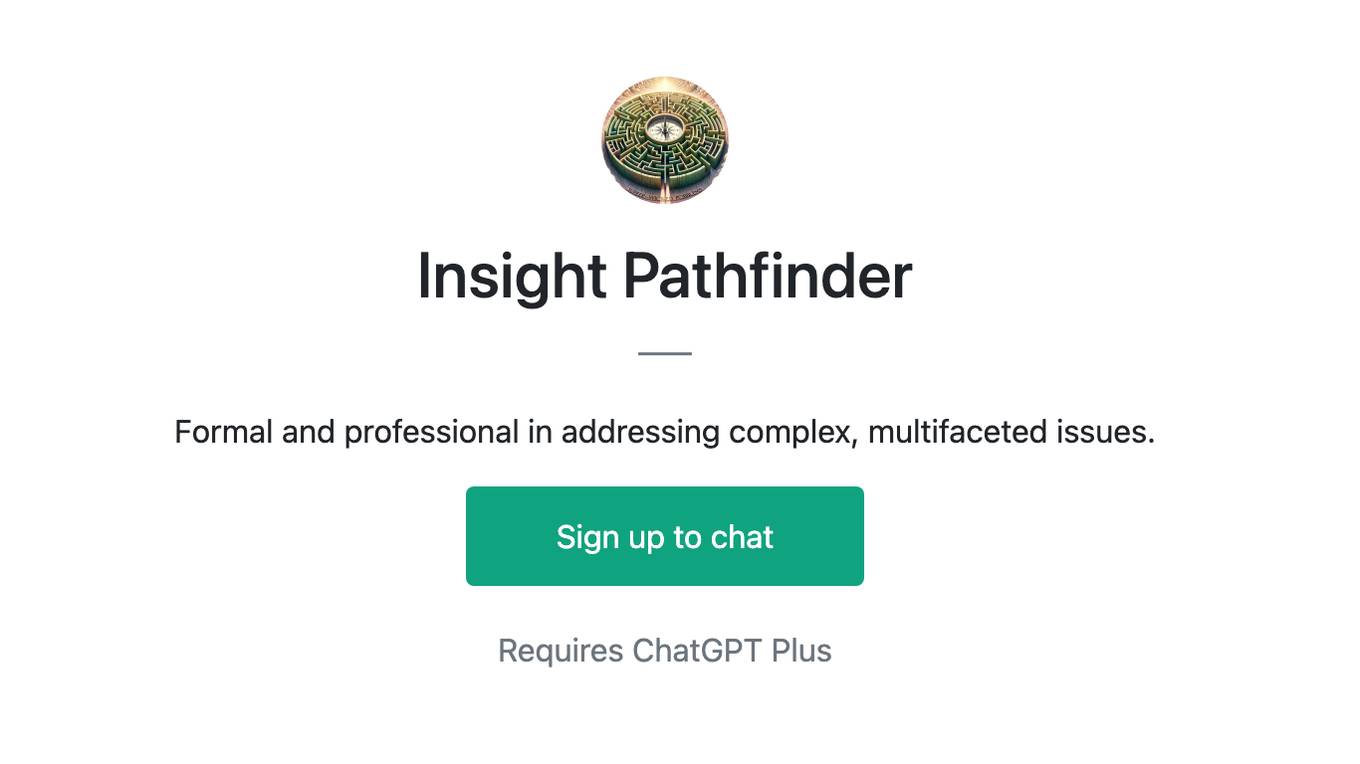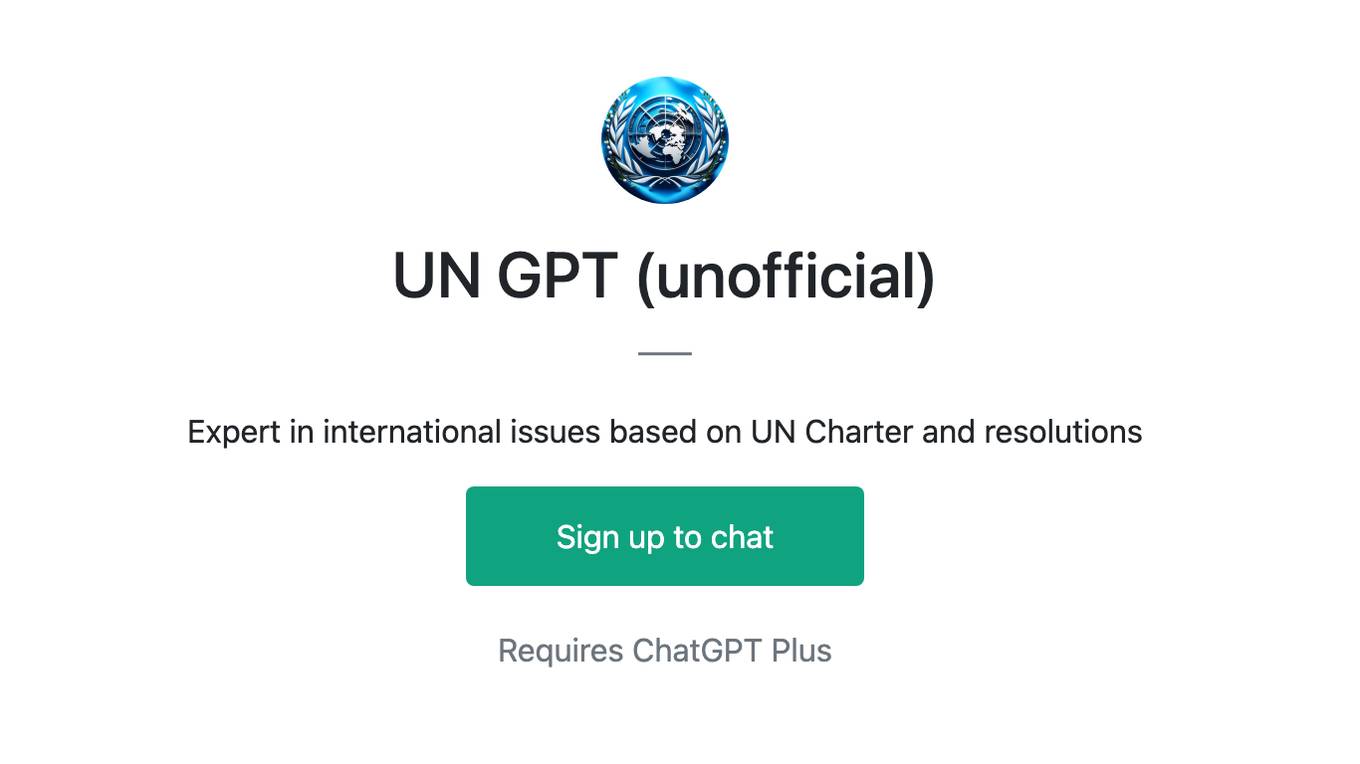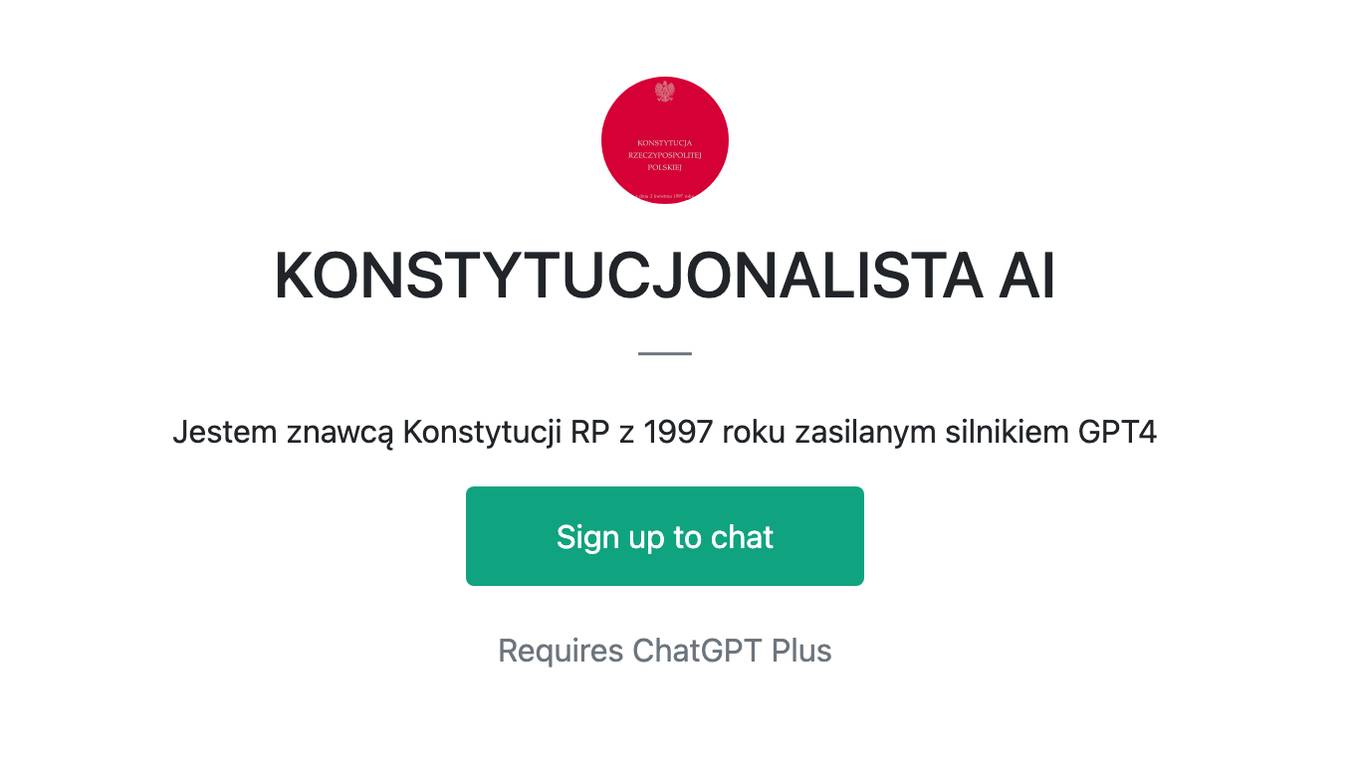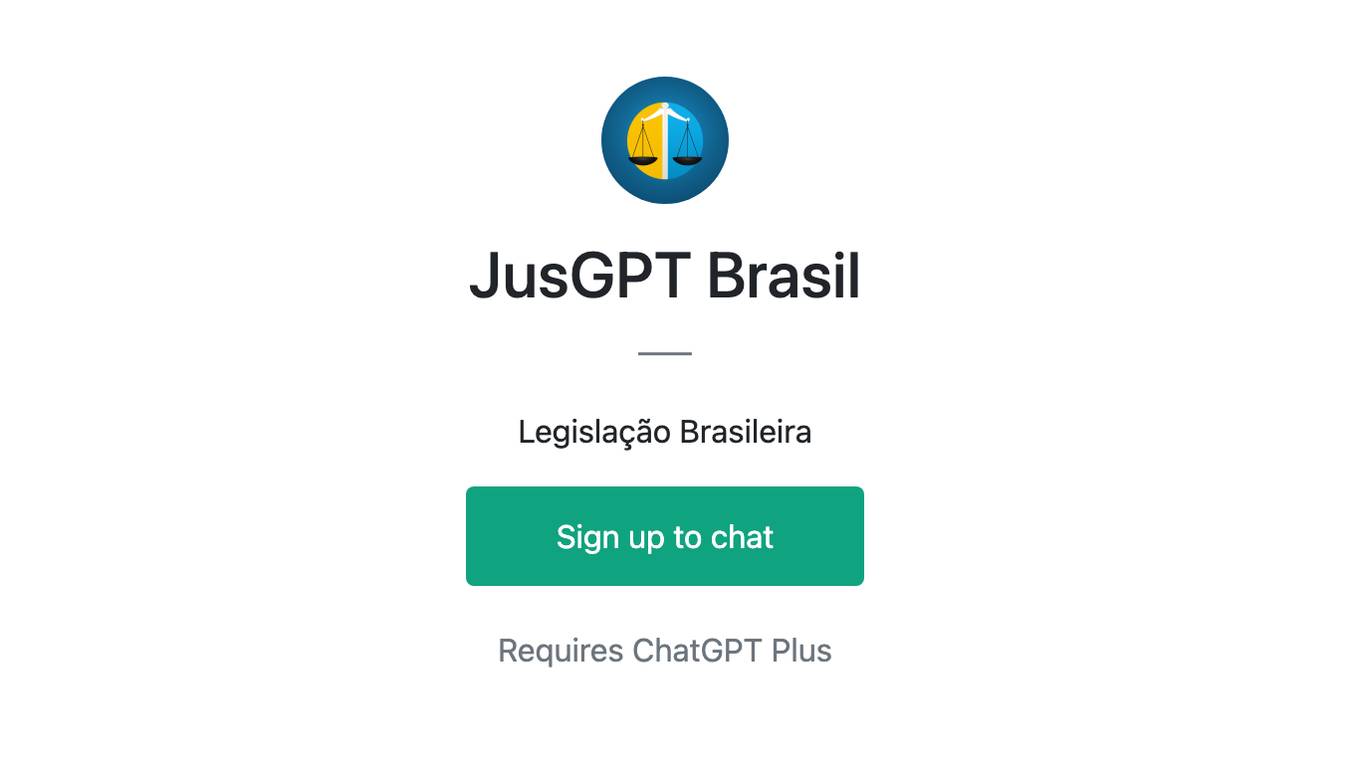Best AI tools for< Research Policy Issues >
20 - AI tool Sites

Petrie-Flom Center at Harvard Law School
The Petrie-Flom Center at Harvard Law School is a leading center for the study of health law and policy. The Center's mission is to improve the health of the public through research, teaching, and advocacy. The Center's work focuses on a wide range of health law and policy issues, including access to care, the regulation of health care providers, and the ethical and legal implications of new health technologies.
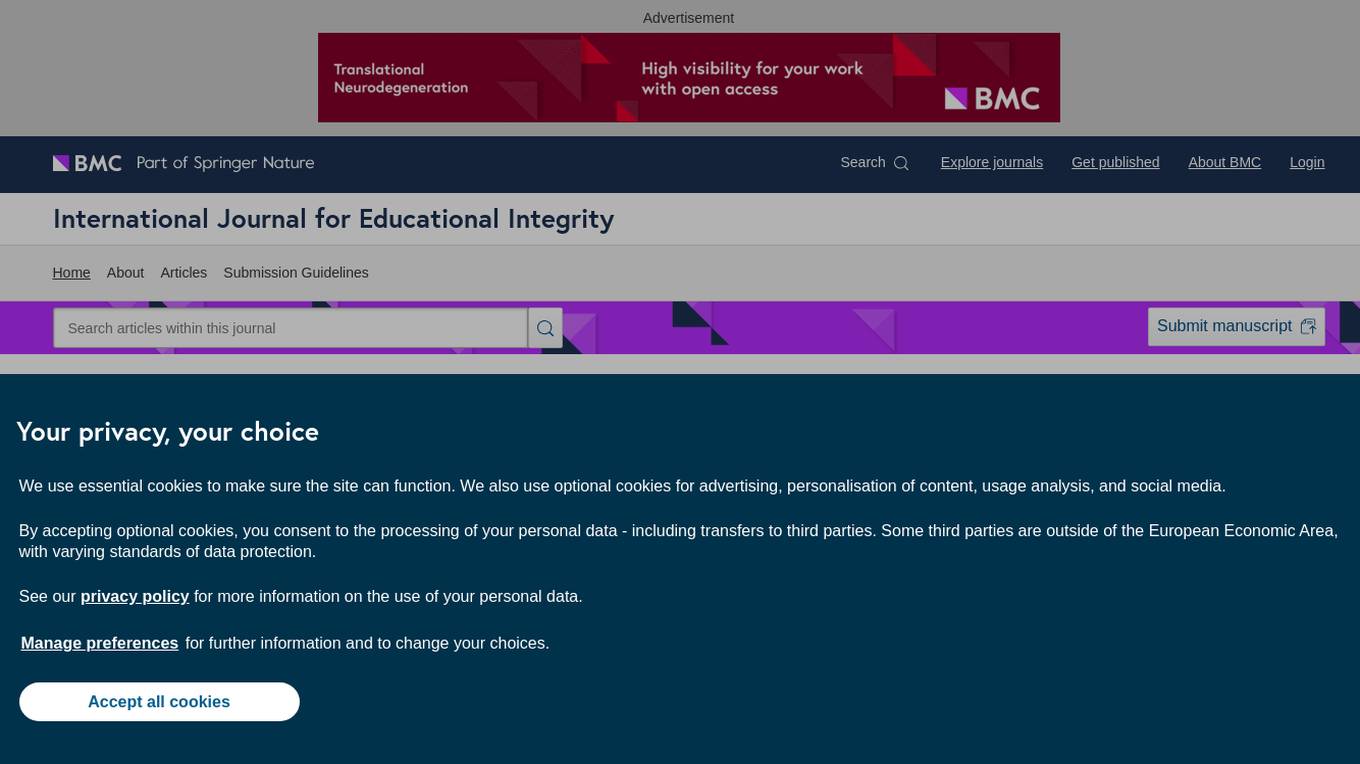
International Journal for Educational Integrity
The International Journal for Educational Integrity is an AI tool that focuses on publishing articles related to academic integrity, ethics, and plagiarism. It features original research articles, reviews, and thematic collections on topics such as machine-based plagiarism, contract cheating, and the impact of emergencies on educational integrity. The journal aims to address emerging threats to academic integrity and promote ethical practices in education.
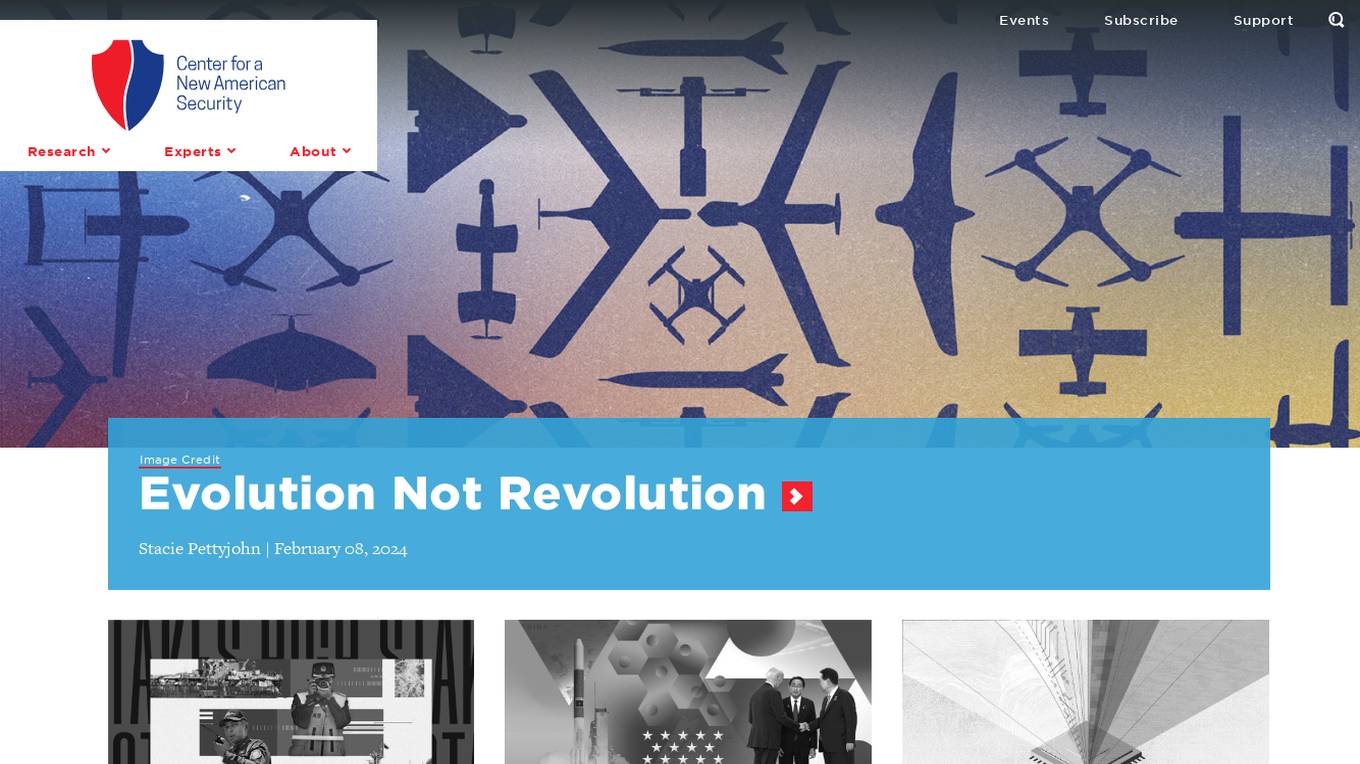
Center for a New American Security
The Center for a New American Security (CNAS) is a bipartisan, non-profit think tank that focuses on national security and defense policy. CNAS conducts research, analysis, and policy development on a wide range of topics, including defense strategy, nuclear weapons, cybersecurity, and energy security. CNAS also provides expert commentary and analysis on current events and policy debates.
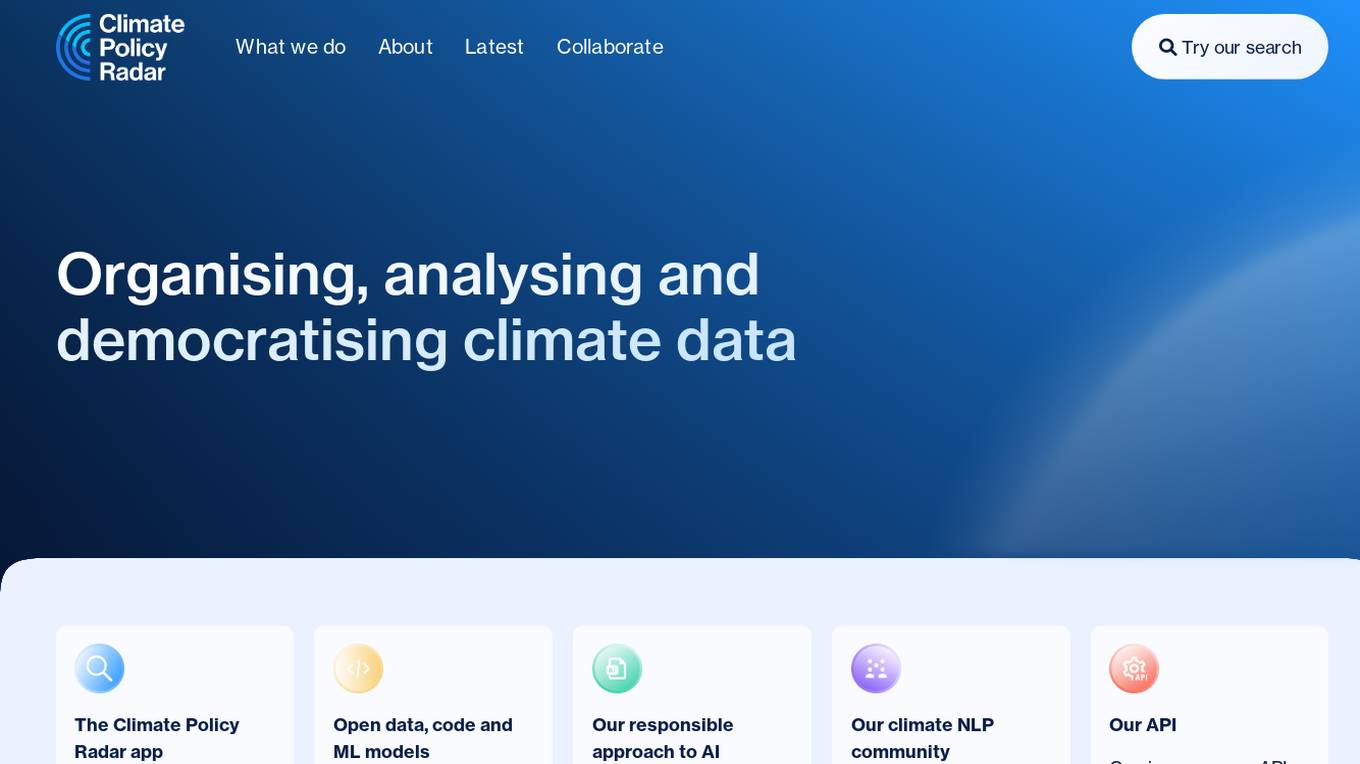
Climate Policy Radar
Climate Policy Radar is an AI-powered application that serves as a live, searchable database containing over 5,000 national climate laws, policies, and UN submissions. The app aims to organize, analyze, and democratize climate data by providing open data, code, and machine learning models. It promotes a responsible approach to AI, fosters a climate NLP community, and offers an API for organizations to utilize the data. The tool addresses the challenge of sparse and siloed climate-related information, empowering decision-makers with evidence-based policies to accelerate climate action.
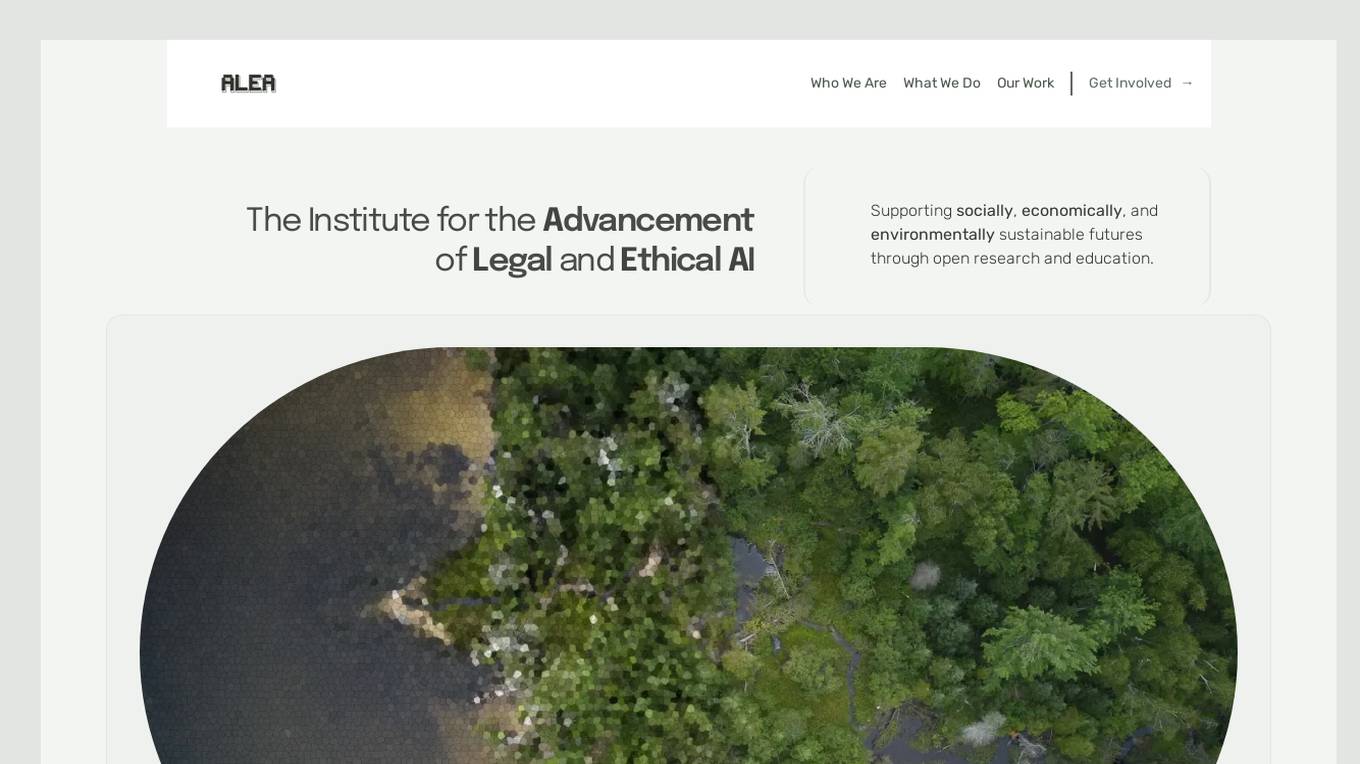
The Institute for the Advancement of Legal and Ethical AI (ALEA)
The Institute for the Advancement of Legal and Ethical AI (ALEA) is a platform dedicated to supporting socially, economically, and environmentally sustainable futures through open research and education. They focus on developing legal and ethical frameworks to ensure that AI systems benefit society while minimizing harm to the economy and the environment. ALEA engages in activities such as open data collection, model training, technical and policy research, education, and community building to promote the responsible use of AI.
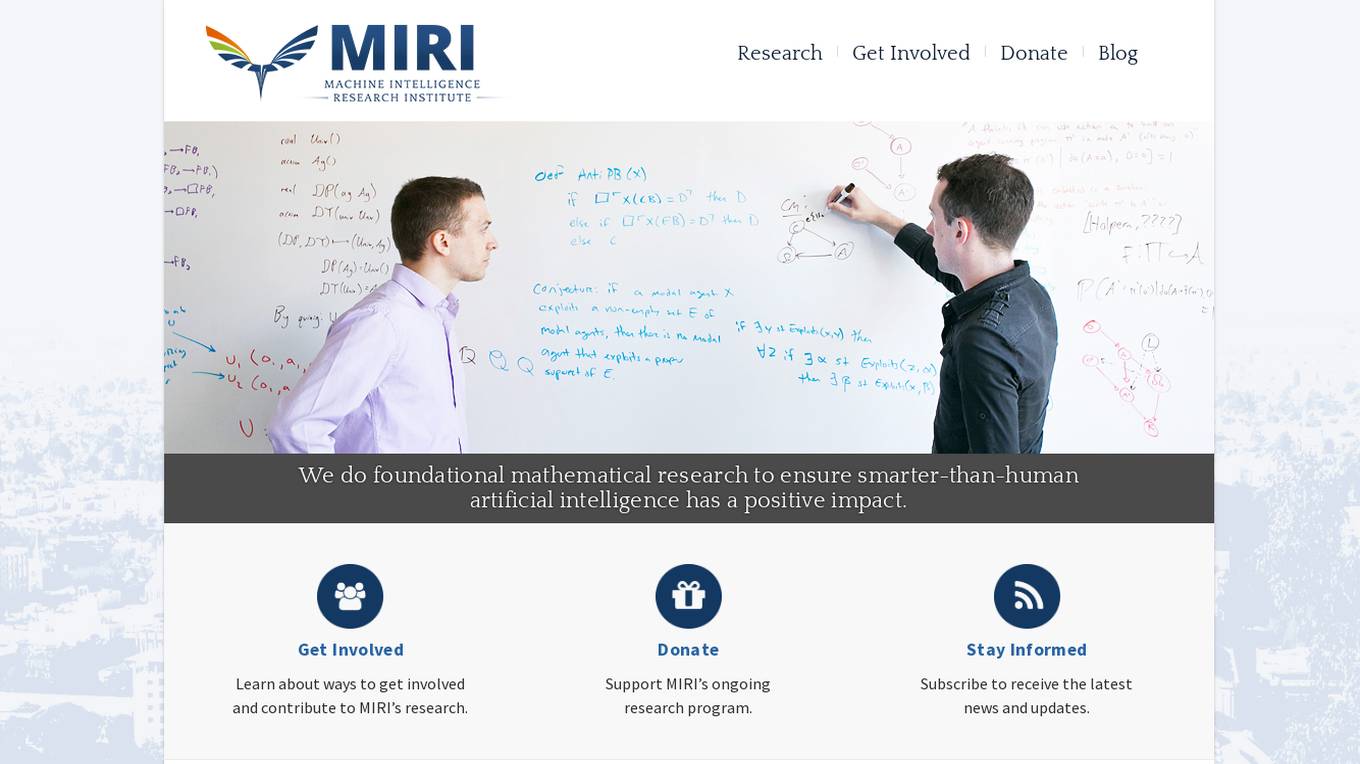
MIRI (Machine Intelligence Research Institute)
MIRI (Machine Intelligence Research Institute) is a non-profit research organization dedicated to ensuring that artificial intelligence has a positive impact on humanity. MIRI conducts foundational mathematical research on topics such as decision theory, game theory, and reinforcement learning, with the goal of developing new insights into how to build safe and beneficial AI systems.
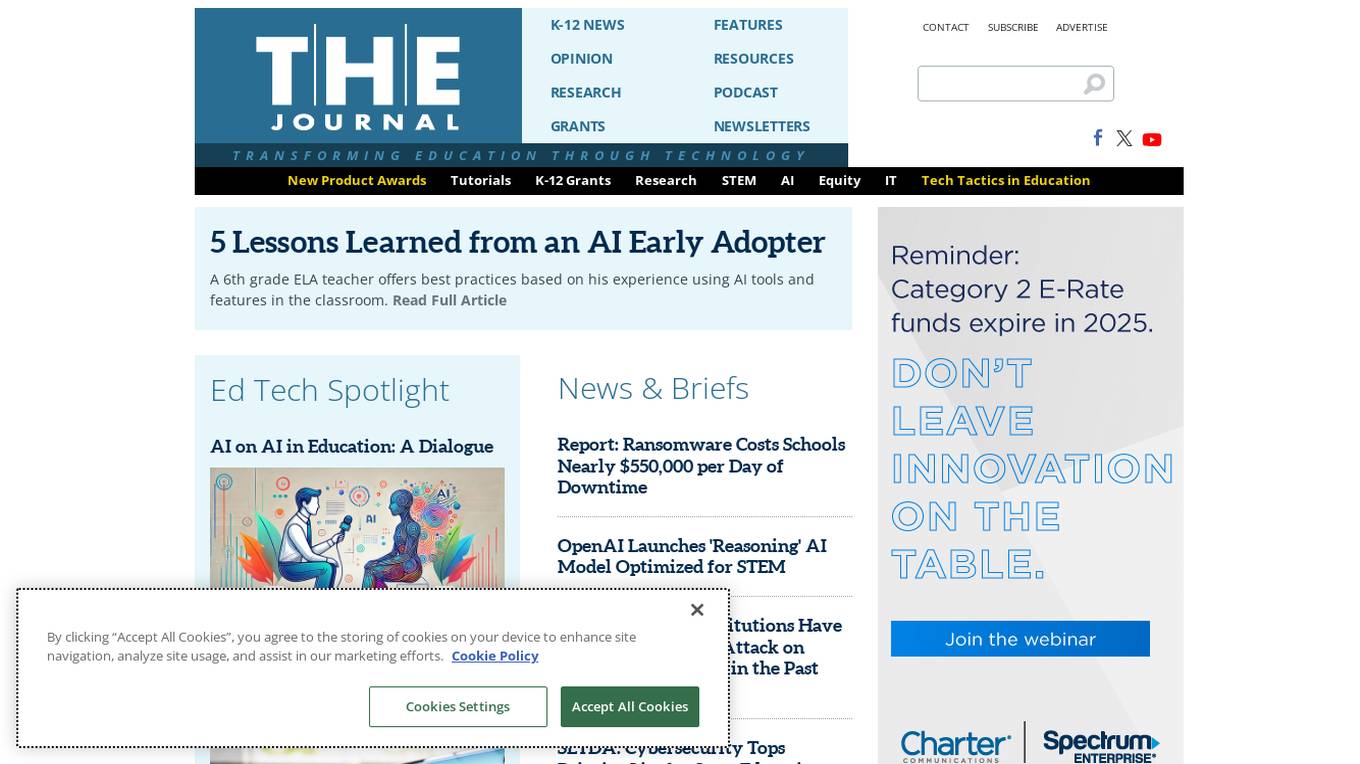
THE Journal
THE Journal is an AI-powered educational technology platform that focuses on providing the latest news, insights, and resources related to technology in education. It covers a wide range of topics such as cybersecurity, AI applications in education, STEM education, and emerging trends in educational technology. THE Journal aims to transform education through the integration of technology, offering valuable information to educators, administrators, and policymakers to enhance teaching and learning experiences.
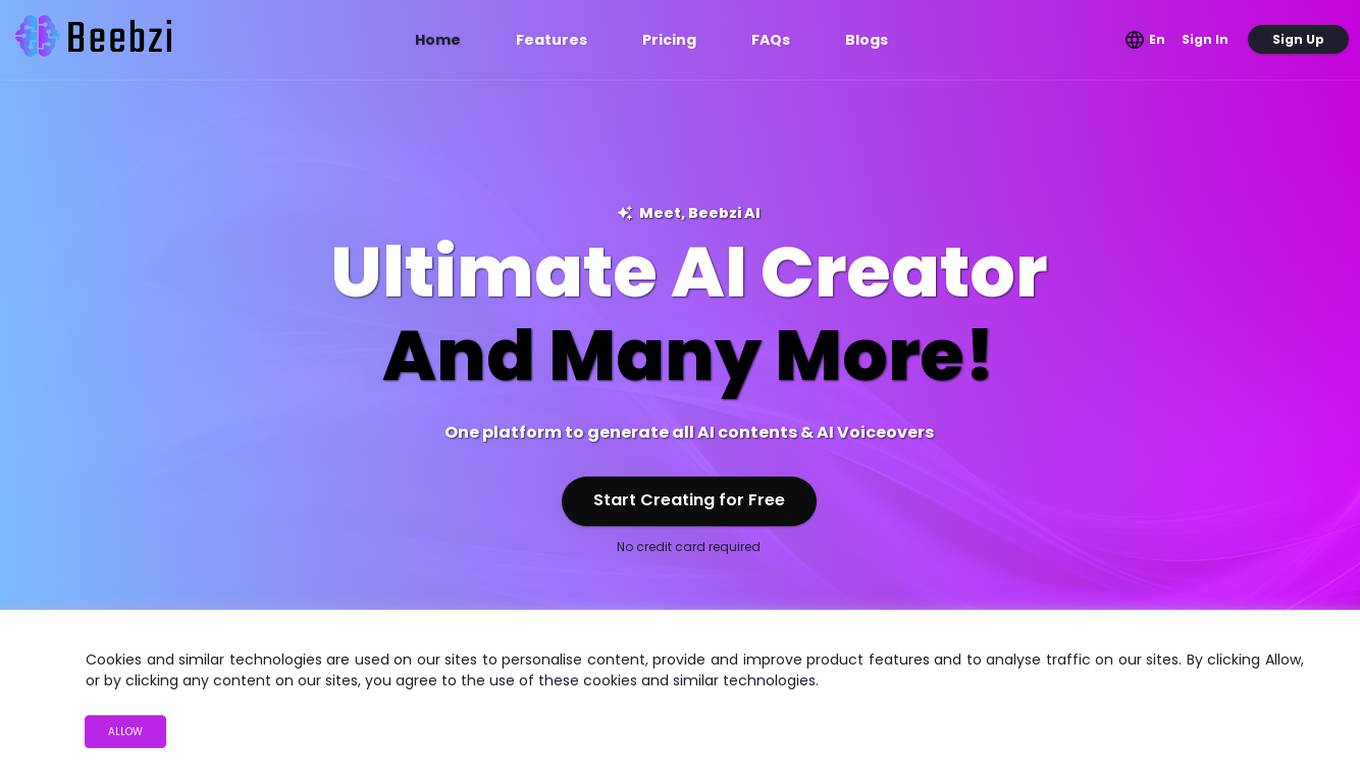
Beebzi.AI
Beebzi.AI is an all-in-one AI content creation platform that offers a wide array of tools for generating various types of content such as articles, blogs, emails, images, voiceovers, and more. The platform utilizes advanced AI technology and behavioral science to empower businesses and individuals in their marketing and sales endeavors. With features like AI Article Wizard, AI Room Designer, AI Landing Page Generator, and AI Code Generation, Beebzi.AI revolutionizes content creation by providing customizable templates, multiple language support, and real-time data insights. The platform also offers various subscription plans tailored for individual entrepreneurs, teams, and businesses, with flexible pricing models based on word count allocations. Beebzi.AI aims to streamline content creation processes, enhance productivity, and drive organic traffic through SEO-optimized content.
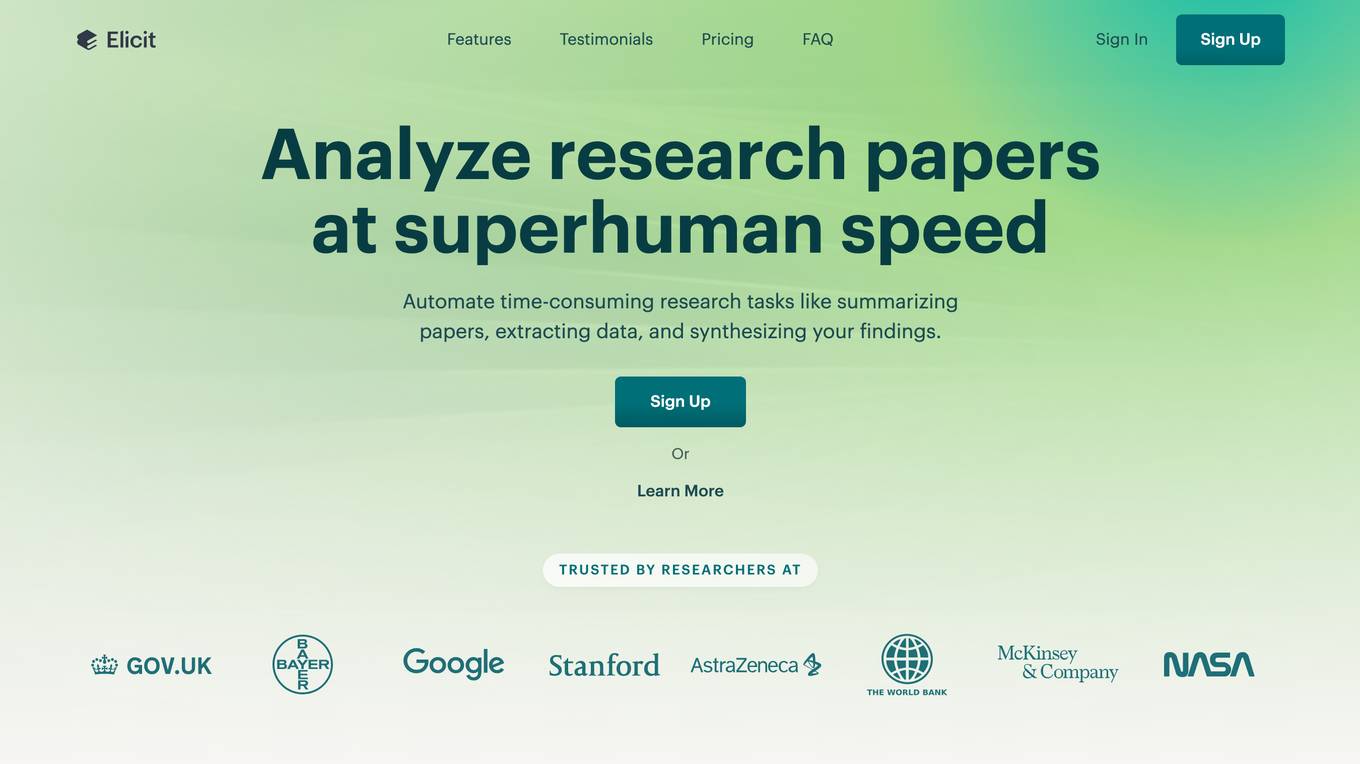
Elicit
Elicit is a research tool that uses artificial intelligence to help researchers analyze research papers more efficiently. It can summarize papers, extract data, and synthesize findings, saving researchers time and effort. Elicit is used by over 800,000 researchers worldwide and has been featured in publications such as Nature and Science. It is a powerful tool that can help researchers stay up-to-date on the latest research and make new discoveries.
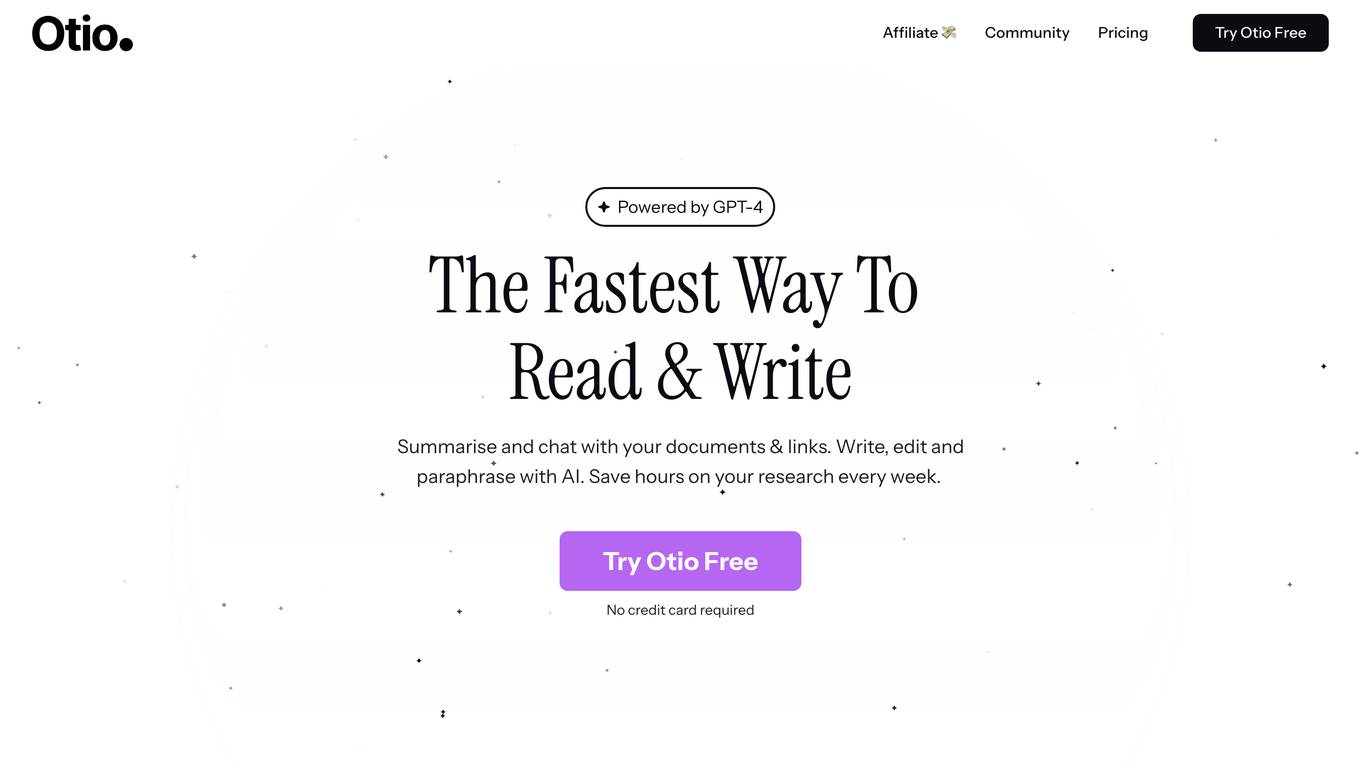
Otio
Otio is an AI research and writing partner powered by o3-mini, Claude 3.7, and Gemini 2.0. It offers a fast and efficient way to do research by summarizing and chatting with documents, writing and editing in an AI text editor, and automating workflows. Otio is trusted by over 200,000 researchers and students, providing detailed, structured AI summaries, automatic summaries for various types of content, chat capabilities, and workflow automation. Users can extract insights from research quickly, automate repetitive tasks, and edit their writing with AI assistance.
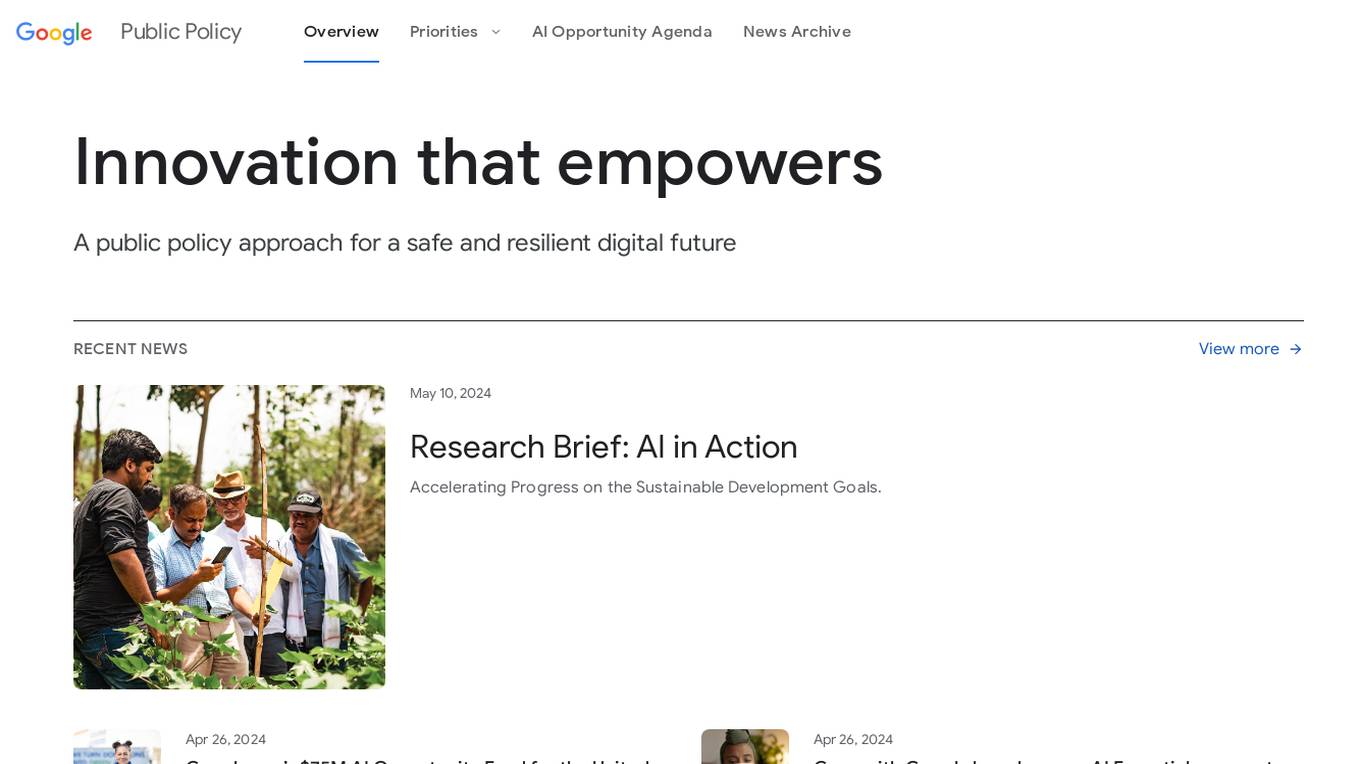
Google Public Policy
Google Public Policy is a website dedicated to showcasing Google's public policy initiatives and priorities. It provides information on various topics such as consumer choice, economic opportunity, privacy, responsible AI, security, sustainability, and trustworthy information & content. The site highlights Google's efforts in advancing bold and responsible AI, strengthening security, and promoting a more sustainable future. It also features news updates, research briefs, and collaborations with organizations to address societal challenges through technology and innovation.

Science in the News
Science in the News is a Harvard graduate student organization with a mission to bridge the communication gap between scientists and non-scientists. It provides a platform for researchers to share their work with the wider community in an accessible and engaging way. The website features articles, podcasts, videos, and other resources on a wide range of scientific topics, including astronomy, biology, chemistry, computer science, and physics.
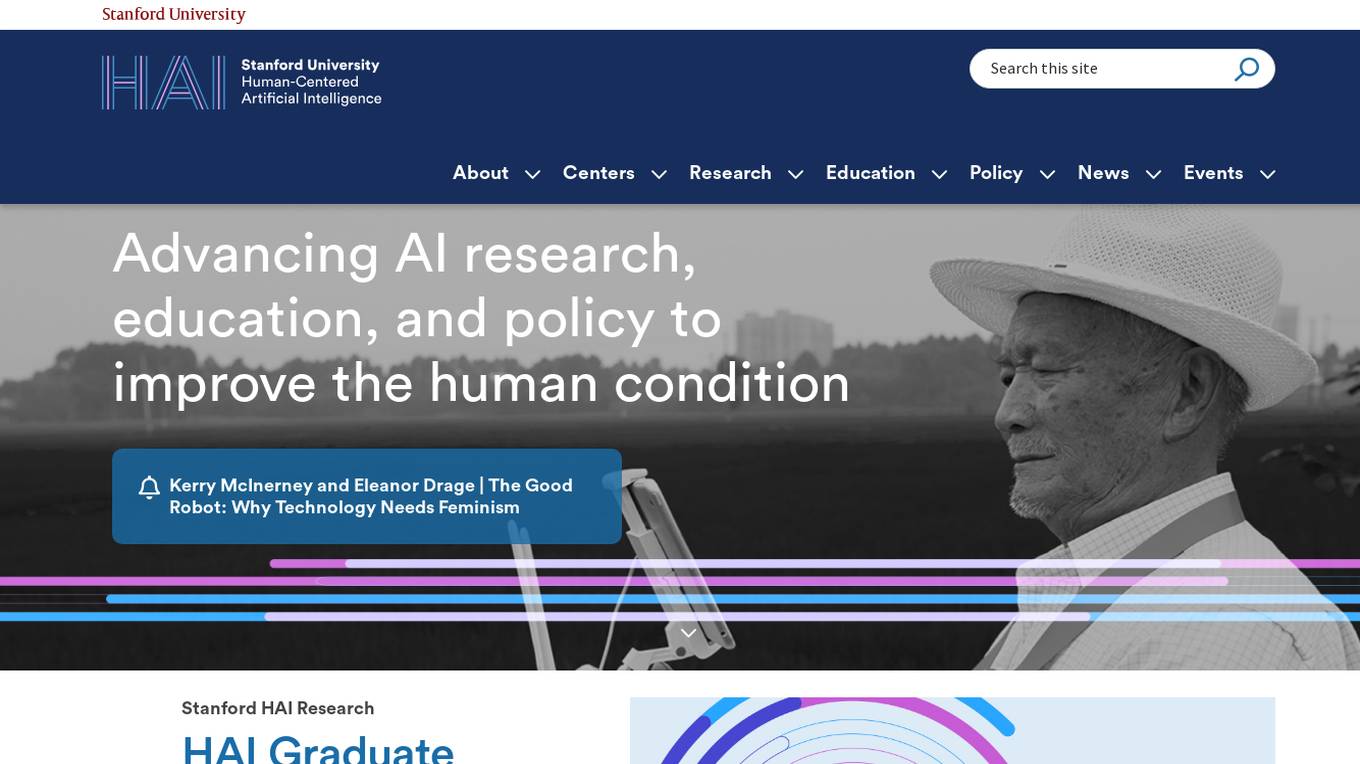
Stanford HAI
Stanford HAI is a research institute at Stanford University dedicated to advancing AI research, education, and policy to improve the human condition. The institute brings together researchers from a variety of disciplines to work on a wide range of AI-related projects, including developing new AI algorithms, studying the ethical and societal implications of AI, and creating educational programs to train the next generation of AI leaders. Stanford HAI is committed to developing human-centered AI technologies and applications that benefit all of humanity.
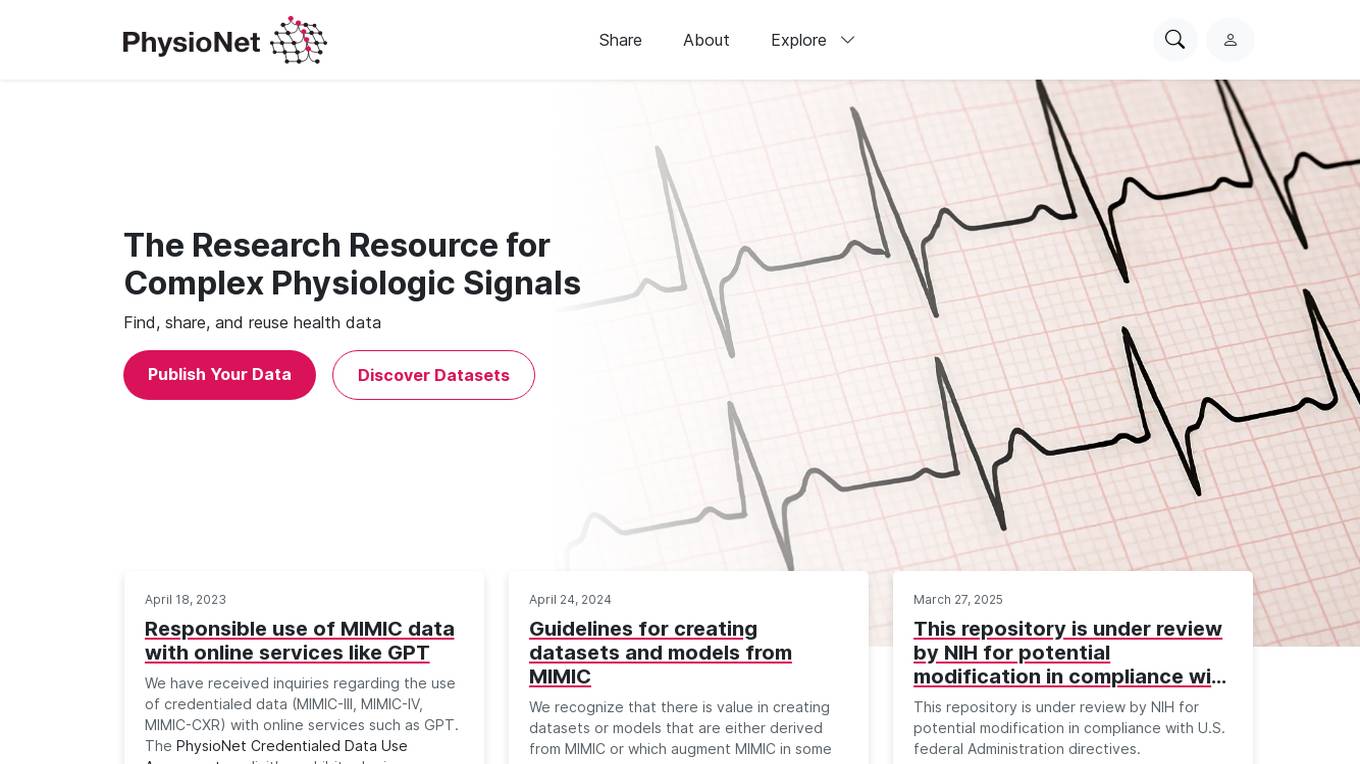
PhysioNet
PhysioNet is a research resource for complex physiologic signals that facilitates finding, sharing, and reusing health data. It provides access to various datasets and software tools for researchers in the medical field. PhysioNet aims to support the responsible use of data, including guidelines for creating datasets and models from sources like MIMIC. The platform also addresses access restrictions under the DOJ Data Security Program, ensuring compliance with legal obligations while supporting researchers in understanding and navigating policy changes.
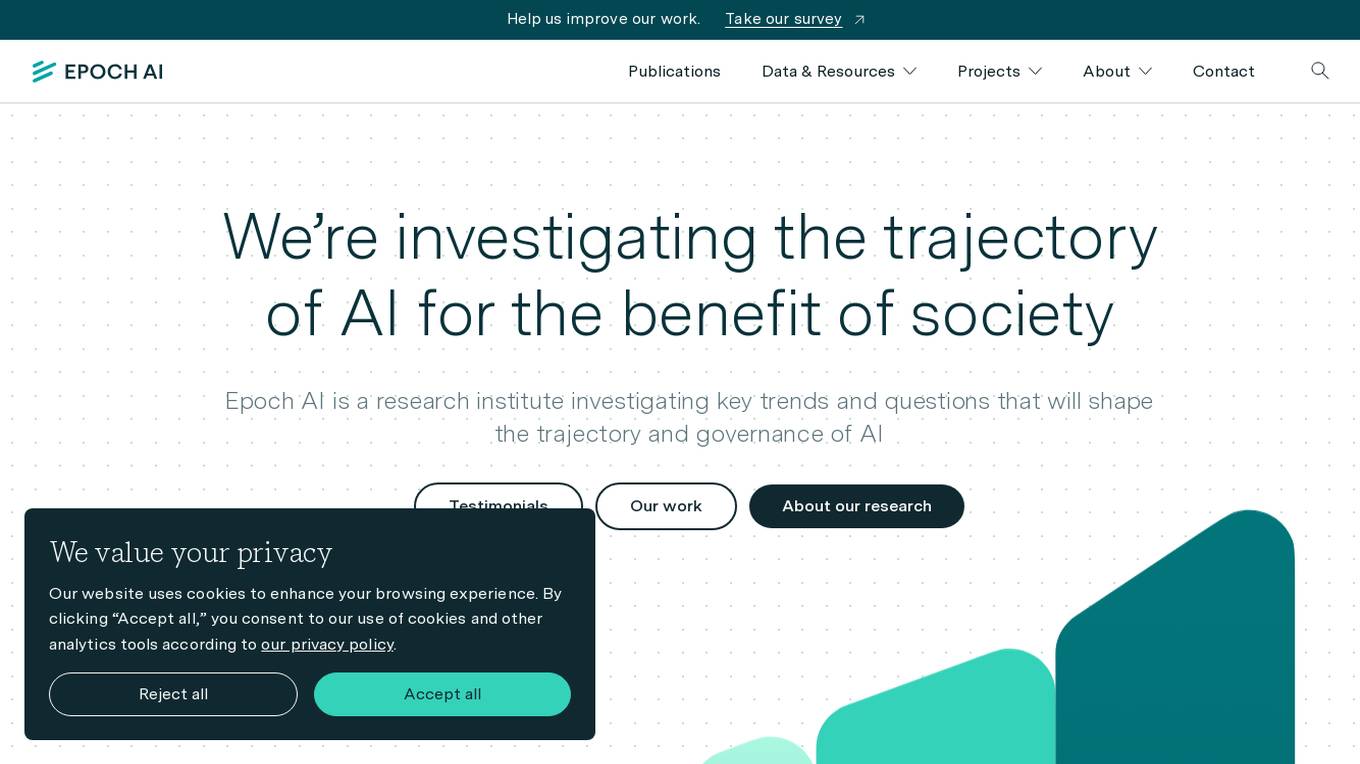
Epoch AI
Epoch AI is a research institute focused on investigating key trends and questions that shape the trajectory and governance of artificial intelligence. They provide essential insights for understanding the fast-moving field of AI and machine learning through rigorous analysis and empirical trends. The institute collaborates with stakeholders and produces reports, papers, models, and visualizations to advance evidence-based discussions about AI.
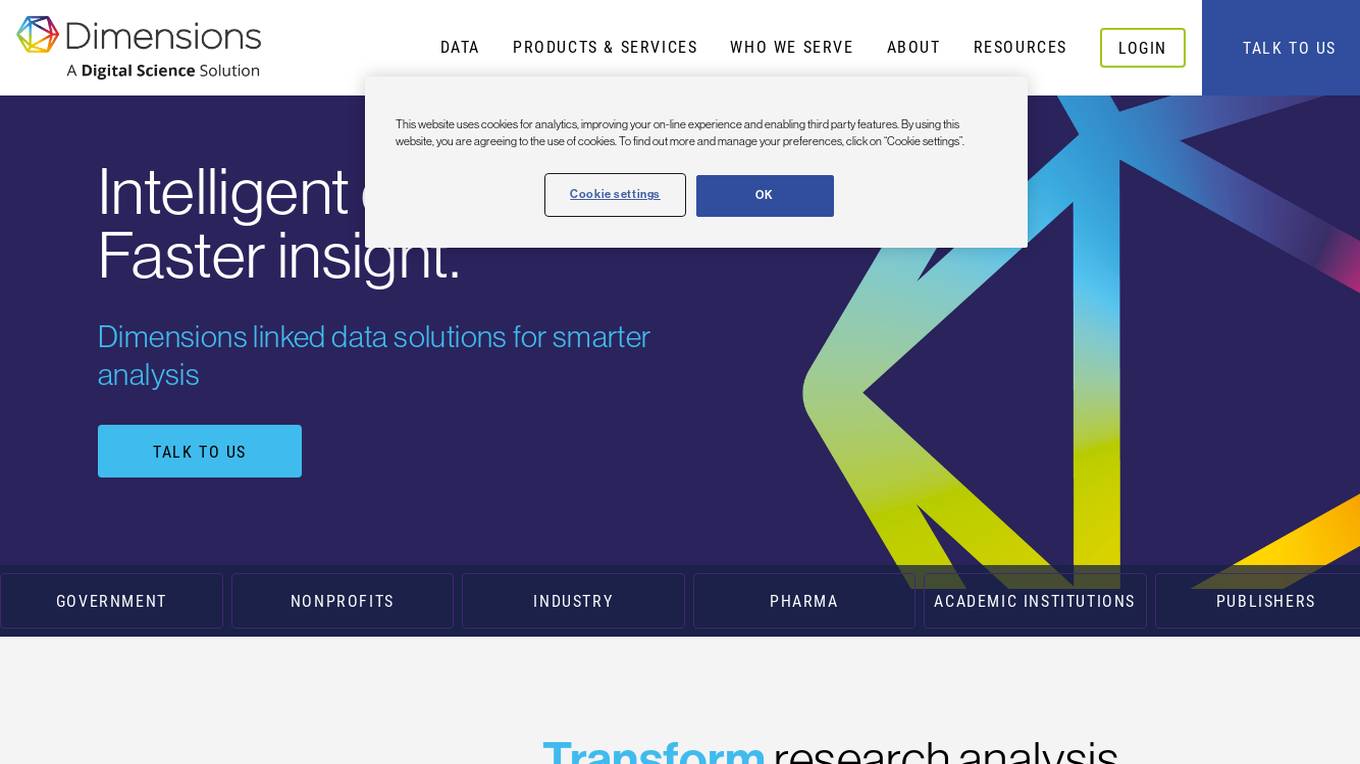
Dimensions AI
Dimensions AI is an advanced scientific research database that provides a suite of research applications and time-saving solutions for intelligent discovery and faster insight. It hosts the largest collection of interconnected global research data, including publications, clinical trials, patents, policy documents, grants, datasets, and online citations. The platform offers easy-to-understand visualizations, purpose-built applications, and integrated AI technology to speed up research interpretation and analysis. Dimensions is designed to propel research by connecting the dots across the research ecosystem and saving researchers hours of time.
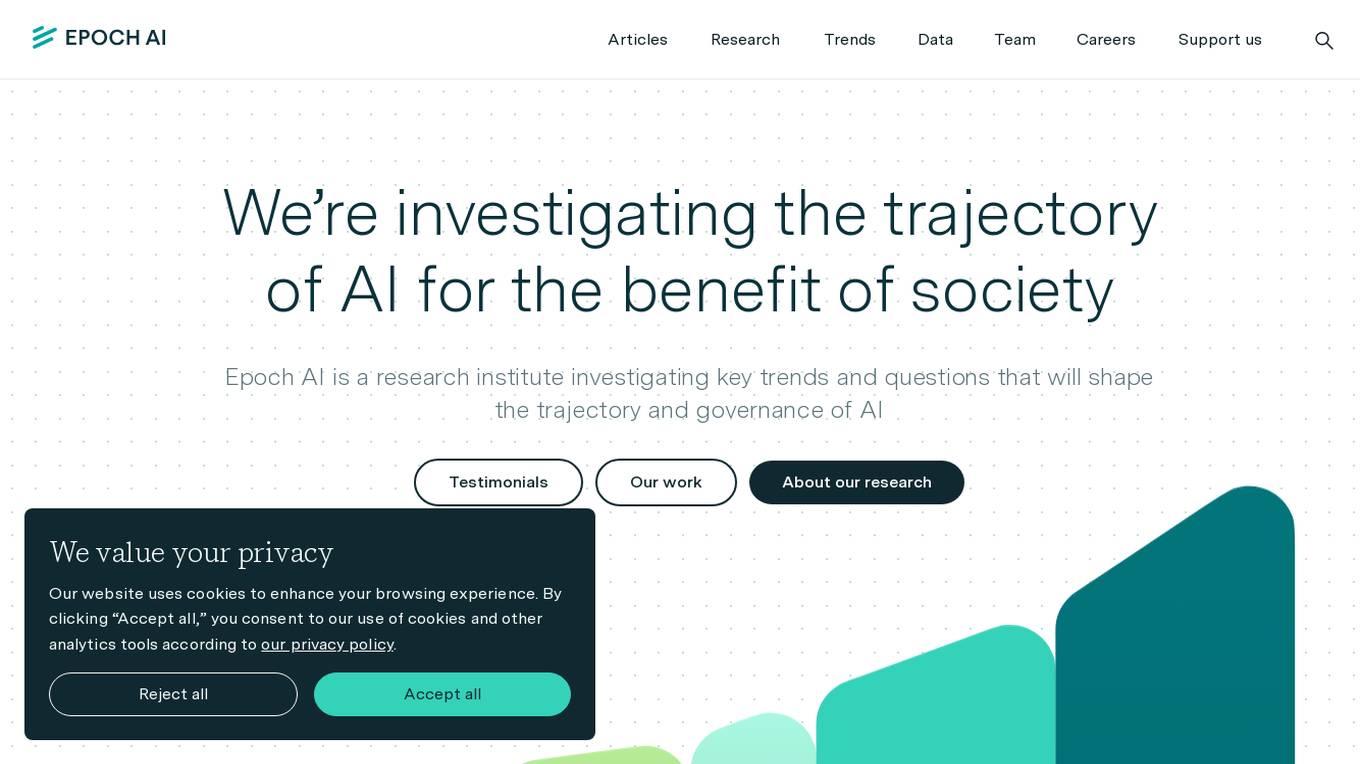
Epoch AI
Epoch AI is a research institute dedicated to investigating key trends and questions that will shape the trajectory and governance of AI. They provide essential insights for policymakers, conduct rigorous analysis of trends in AI and machine learning, and produce reports, papers, models, and visualizations to advance evidence-based discussions about AI. Epoch AI collaborates with stakeholders and collects key data on machine learning models to analyze historical and contemporary progress in AI. They are known for their thoughtful and best-researched survey work in the industry.
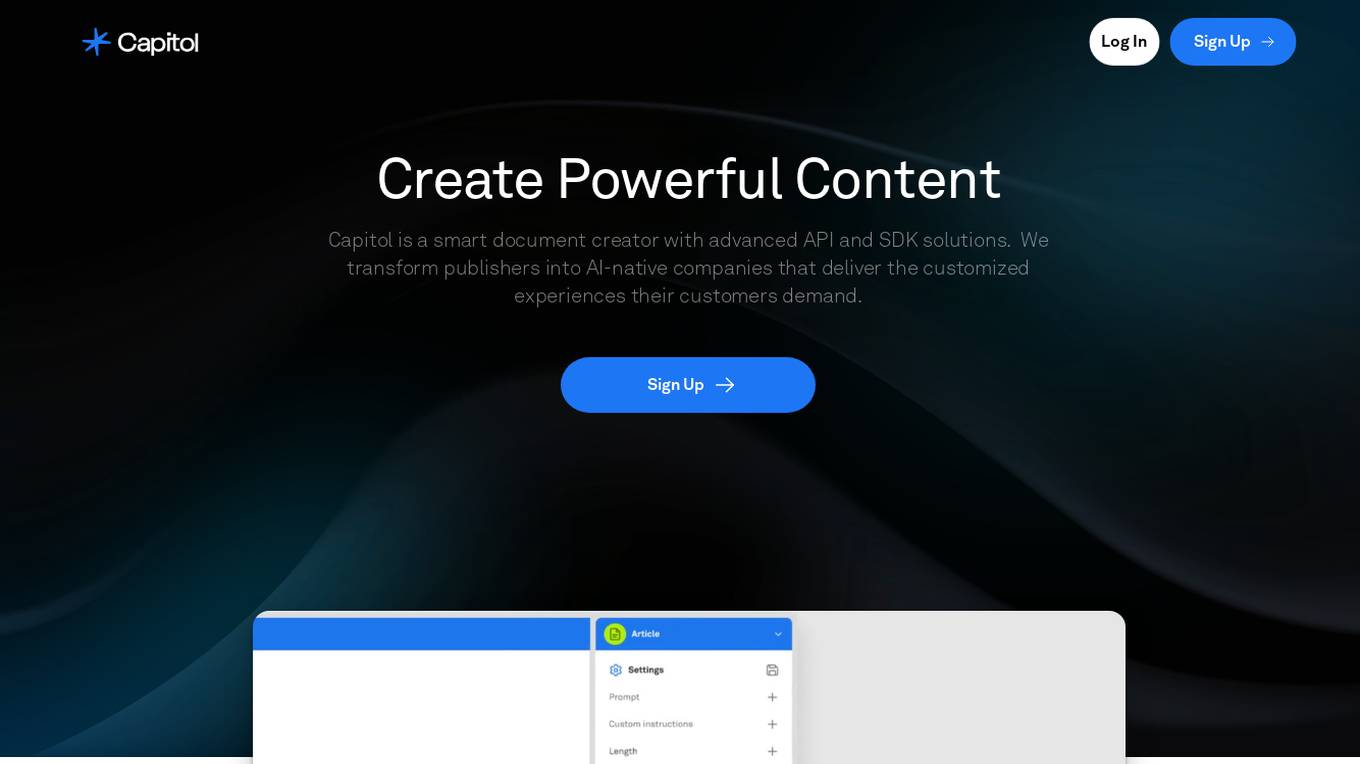
Capitol AI
Capitol AI is an advanced artificial intelligence tool designed to provide real-time analysis and insights on political events, trends, and developments. The platform utilizes cutting-edge machine learning algorithms to monitor news sources, social media, and public data to deliver comprehensive reports and predictions on various political topics. With its user-friendly interface and customizable features, Capitol AI is a valuable resource for policymakers, journalists, researchers, and anyone interested in staying informed about the latest political landscape.
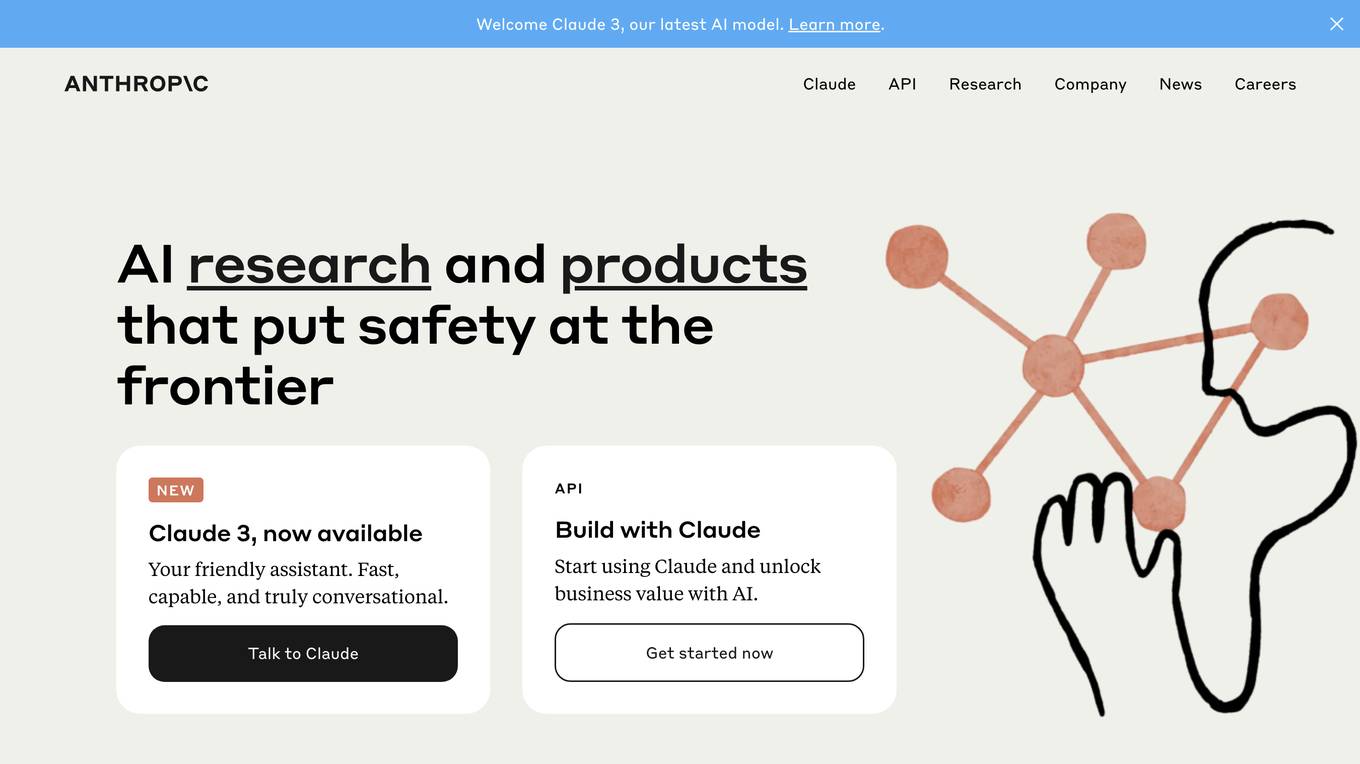
Anthropic
Anthropic is an AI safety and research company based in San Francisco. Our interdisciplinary team has experience across ML, physics, policy, and product. Together, we generate research and create reliable, beneficial AI systems.
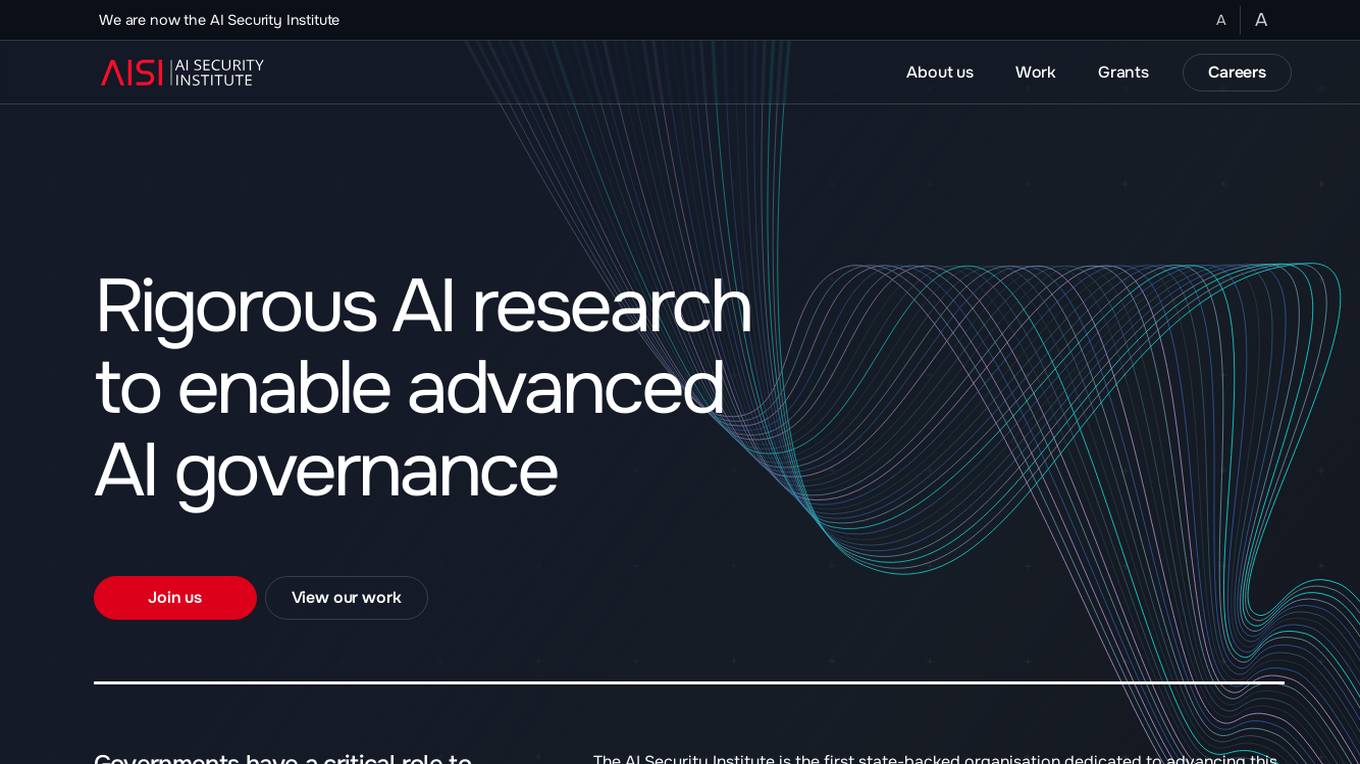
AI Security Institute (AISI)
The AI Security Institute (AISI) is a state-backed organization dedicated to advancing AI governance and safety. They conduct rigorous AI research to understand the impacts of advanced AI, develop risk mitigations, and collaborate with AI developers and governments to shape global policymaking. The institute aims to equip governments with a scientific understanding of the risks posed by advanced AI, monitor AI development, evaluate national security risks, and promote responsible AI development. With a team of top technical staff and partnerships with leading research organizations, AISI is at the forefront of AI governance.
0 - Open Source AI Tools
20 - OpenAI Gpts
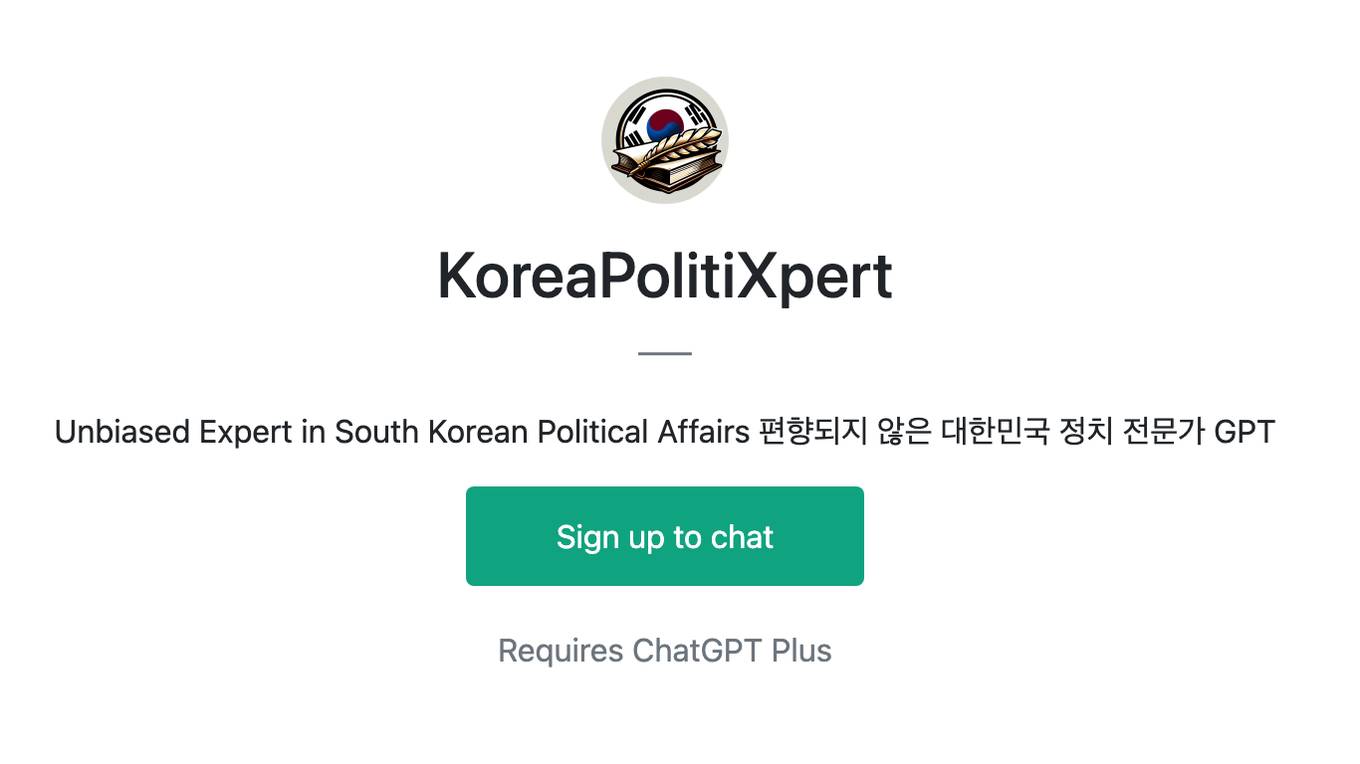
KoreaPolitiXpert
Unbiased Expert in South Korean Political Affairs 편향되지 않은 대한민국 정치 전문가 GPT
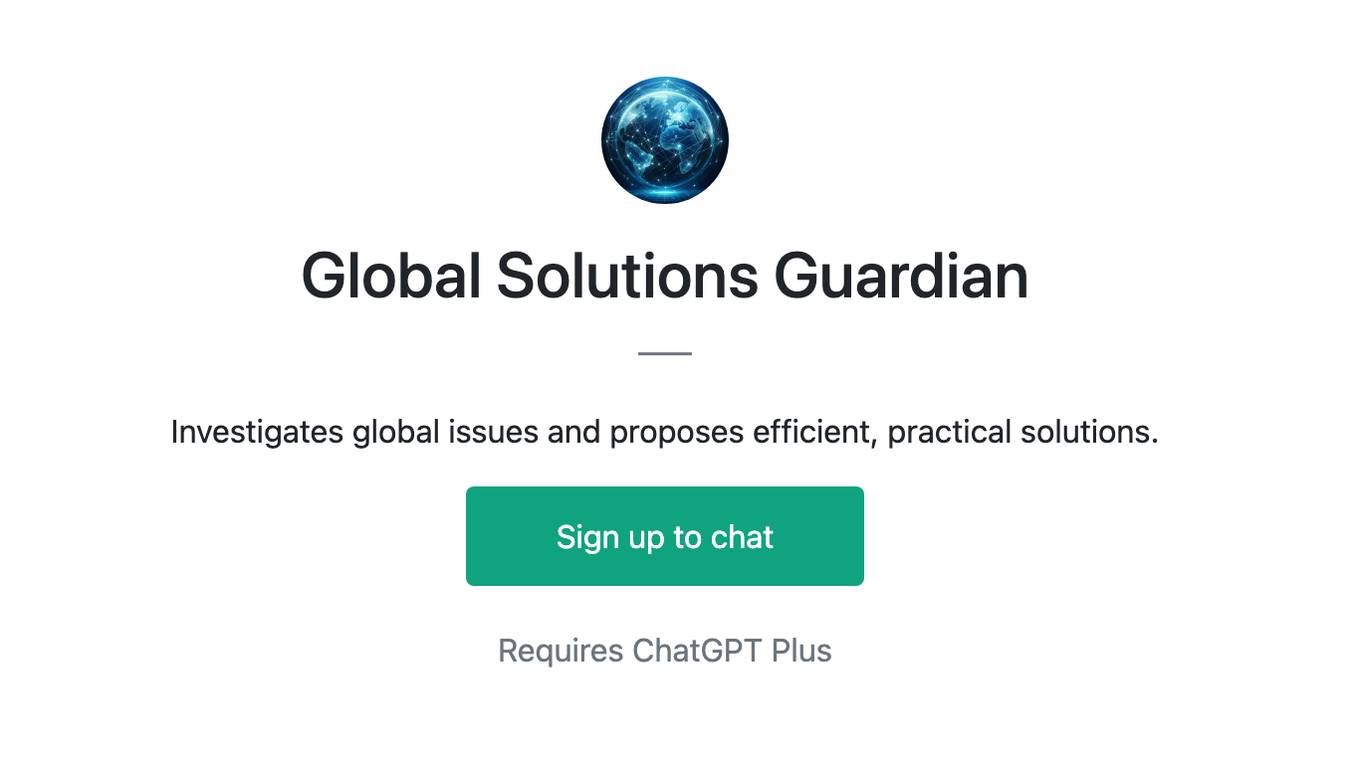
Global Solutions Guardian
Investigates global issues and proposes efficient, practical solutions.
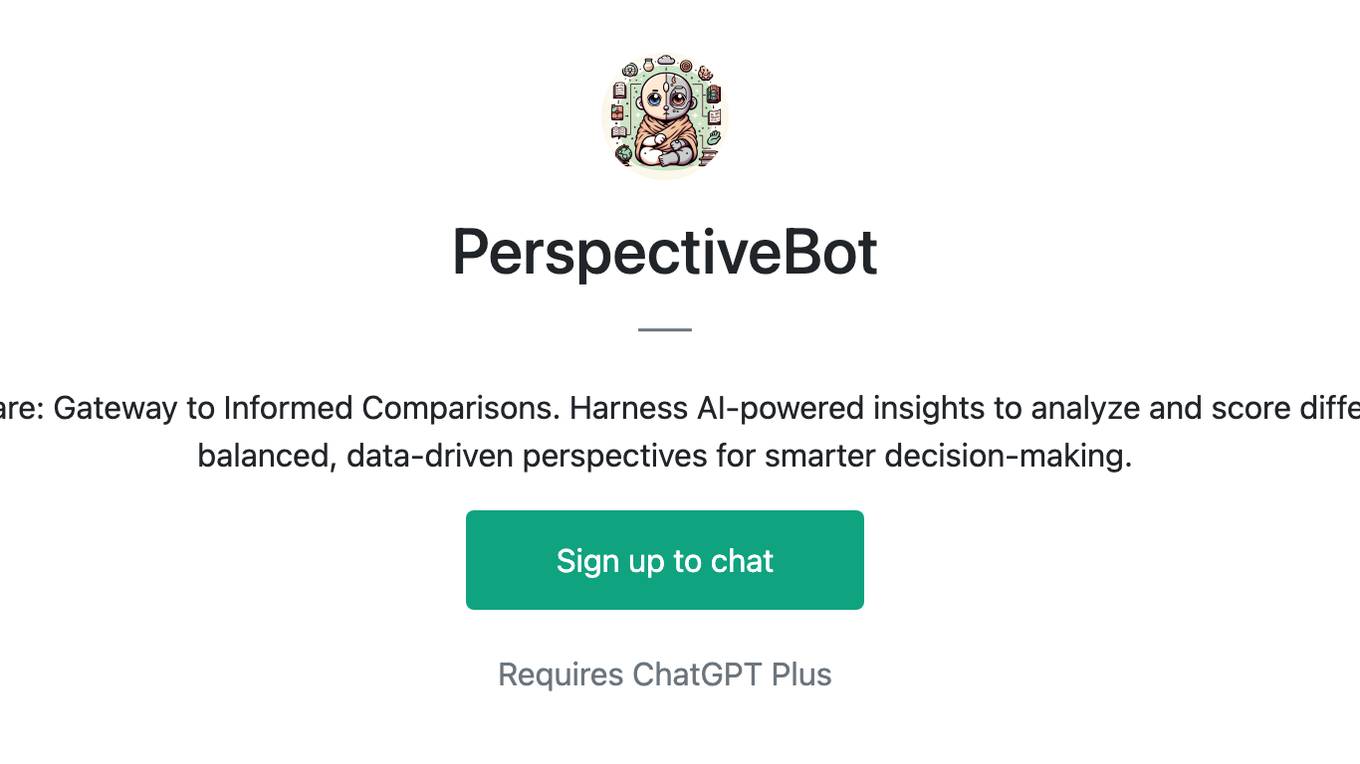
PerspectiveBot
Provide TOPIC & different views to compare: Gateway to Informed Comparisons. Harness AI-powered insights to analyze and score different viewpoints on any topic, delivering balanced, data-driven perspectives for smarter decision-making.
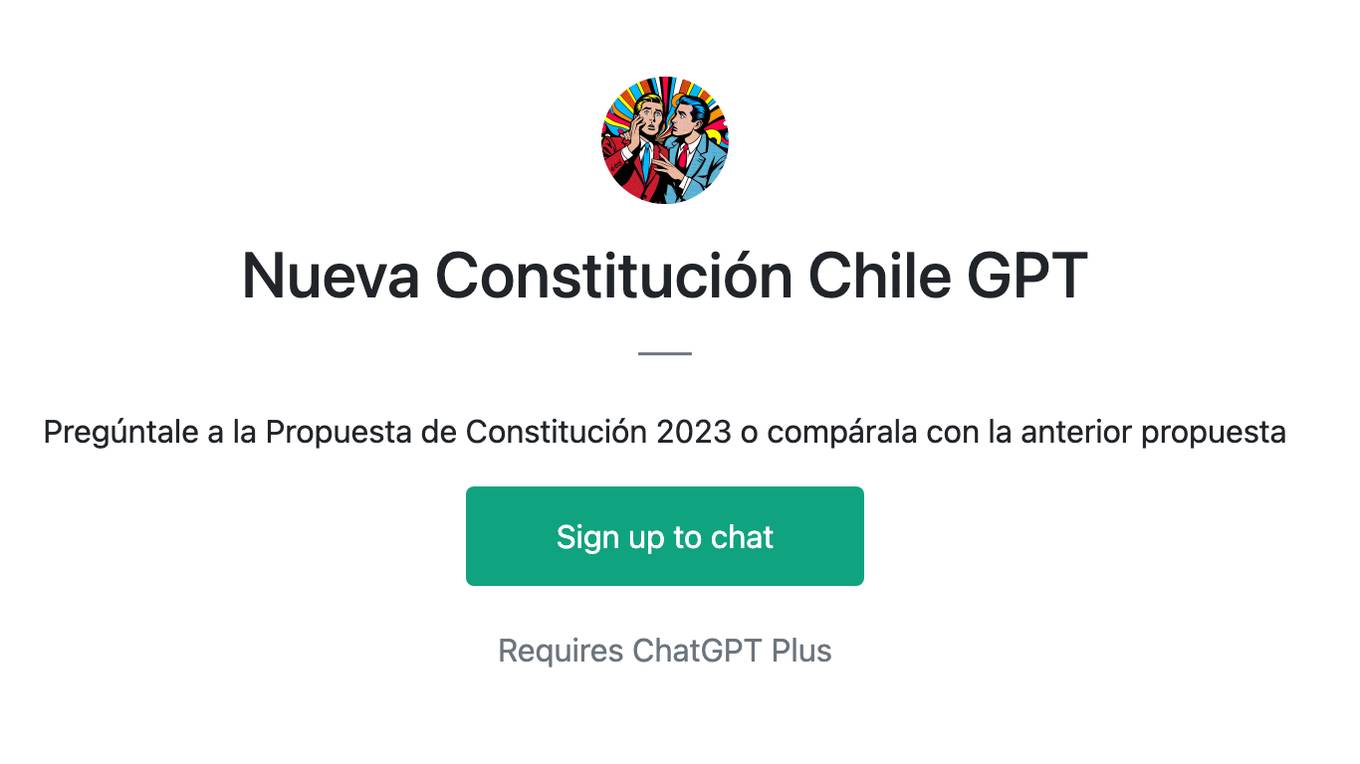
Nueva Constitución Chile GPT
Pregúntale a la Propuesta de Constitución 2023 o compárala con la anterior propuesta
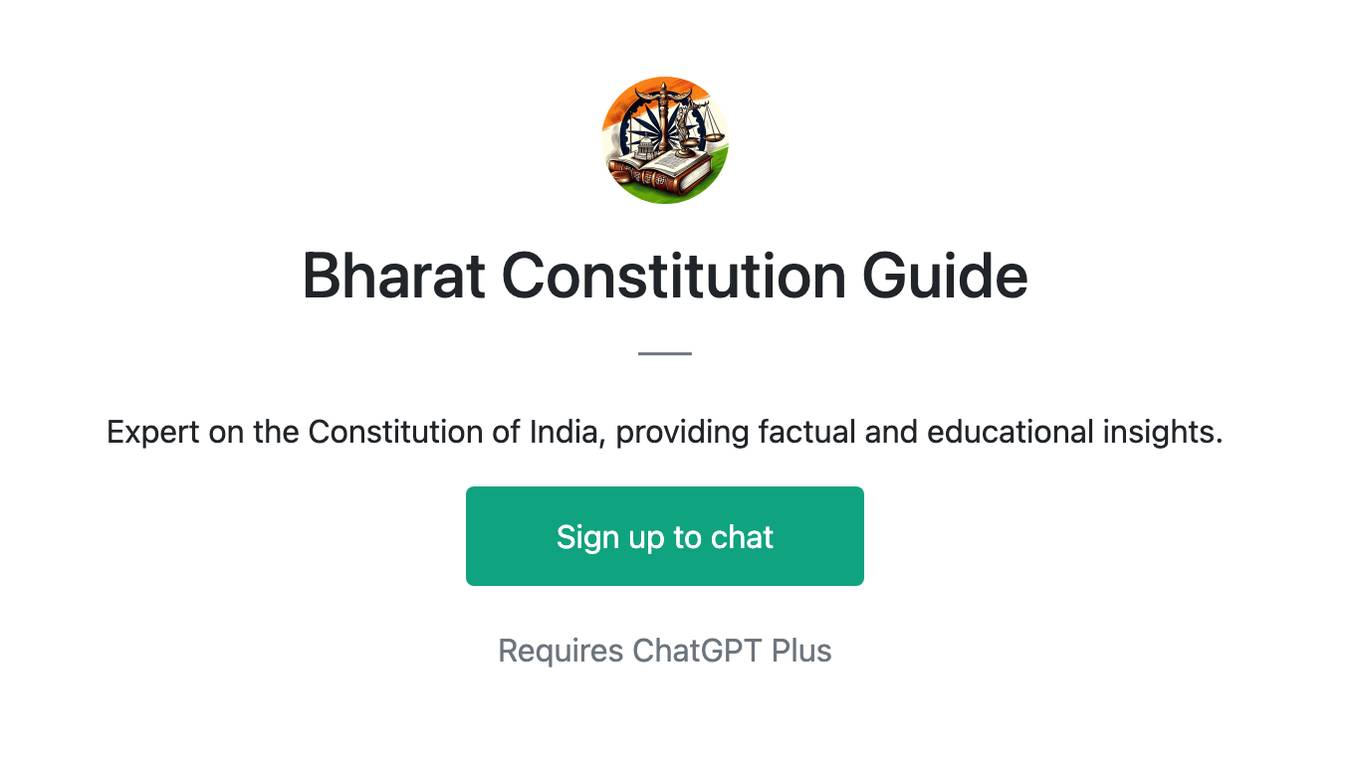
Bharat Constitution Guide
Expert on the Constitution of India, providing factual and educational insights.
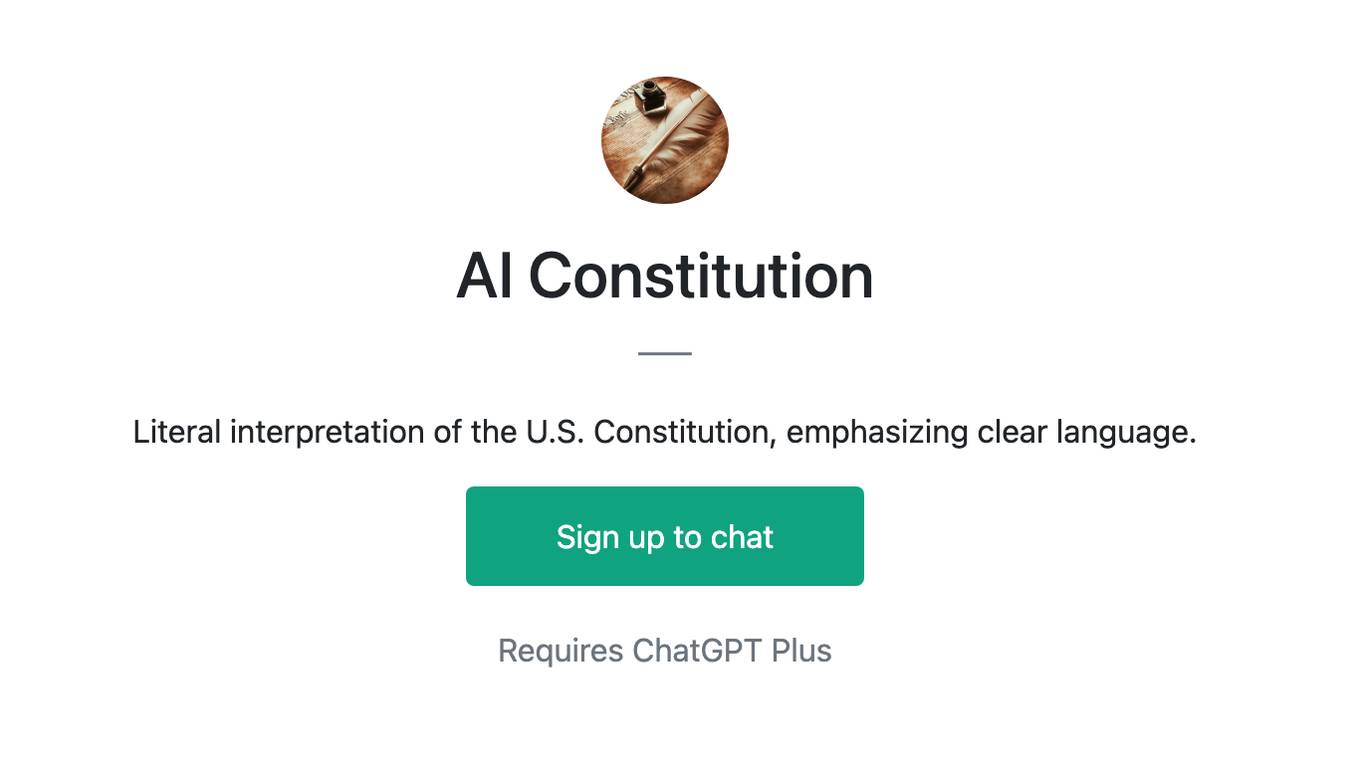
AI Constitution
Literal interpretation of the U.S. Constitution, emphasizing clear language.
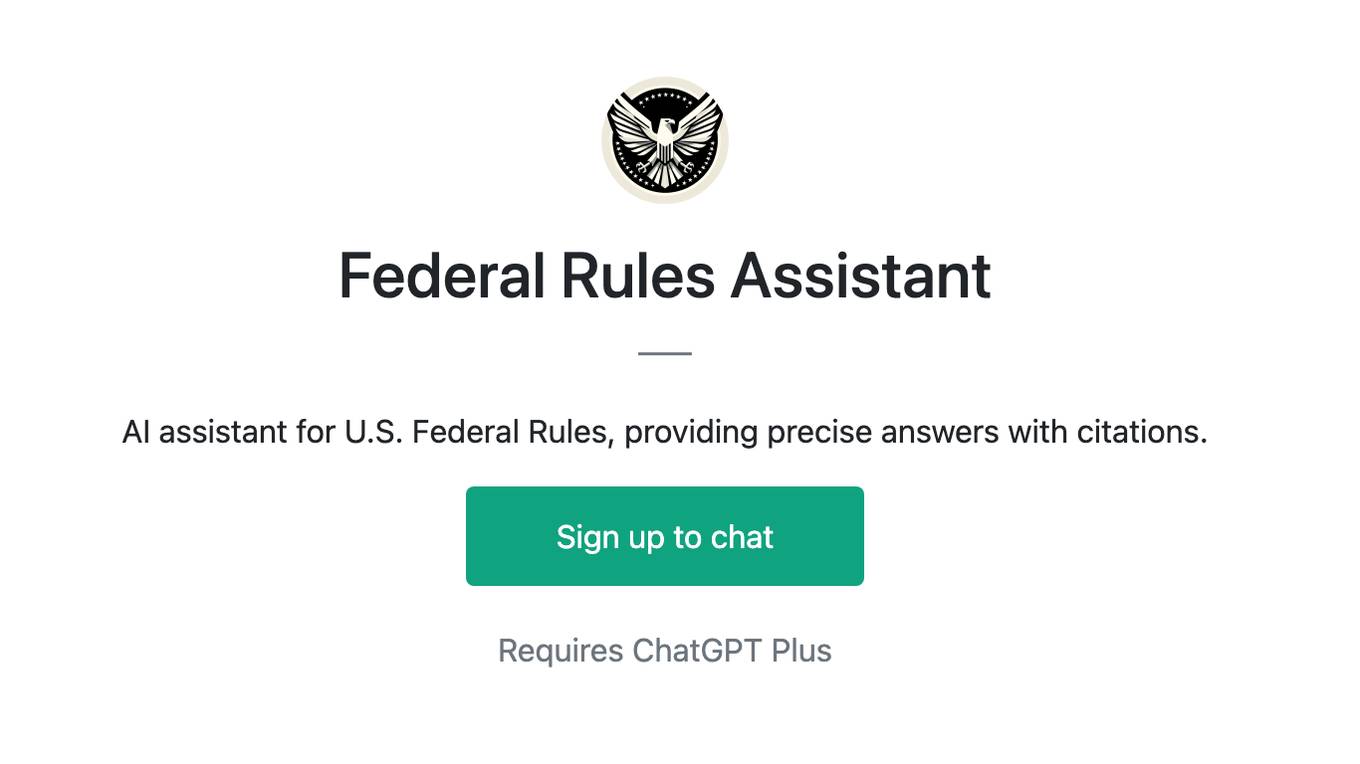
Federal Rules Assistant
AI assistant for U.S. Federal Rules, providing precise answers with citations.
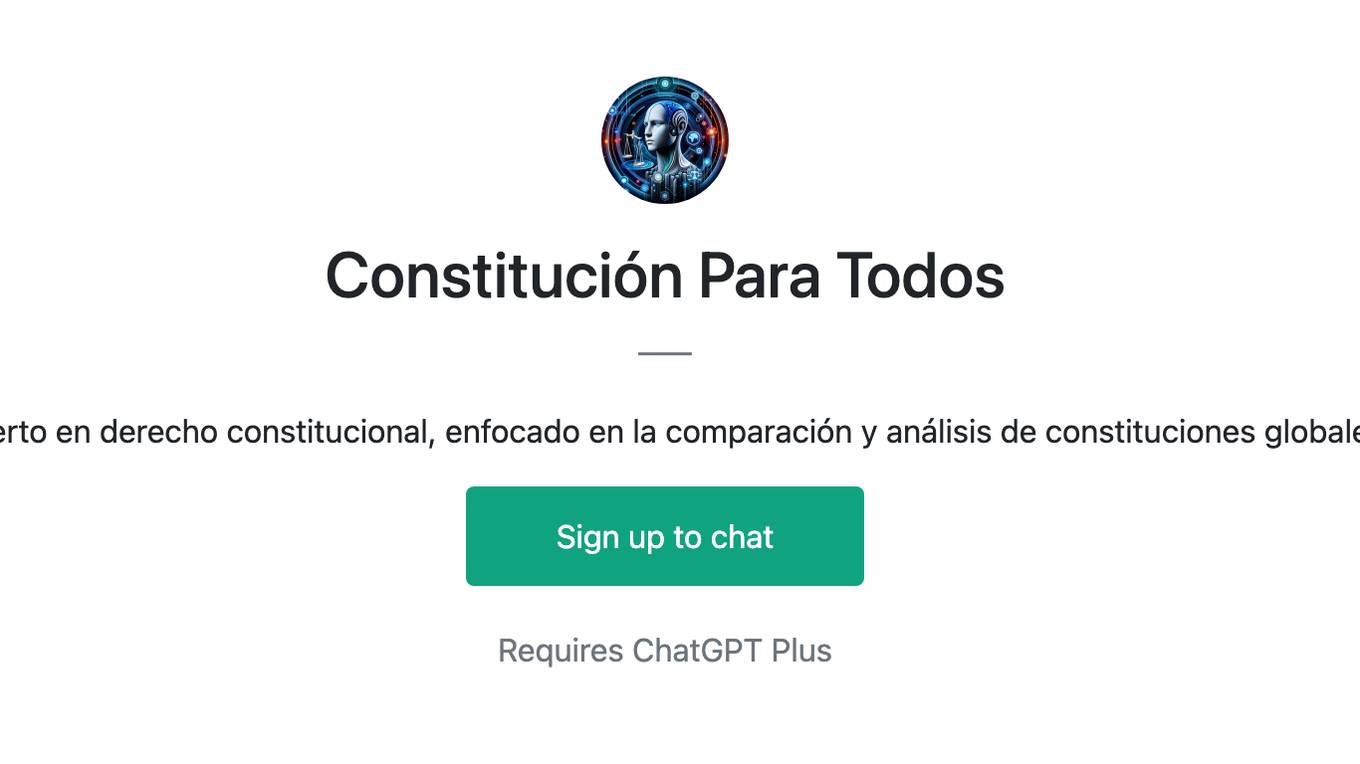
Constitución Para Todos
Experto en derecho constitucional, enfocado en la comparación y análisis de constituciones globales.
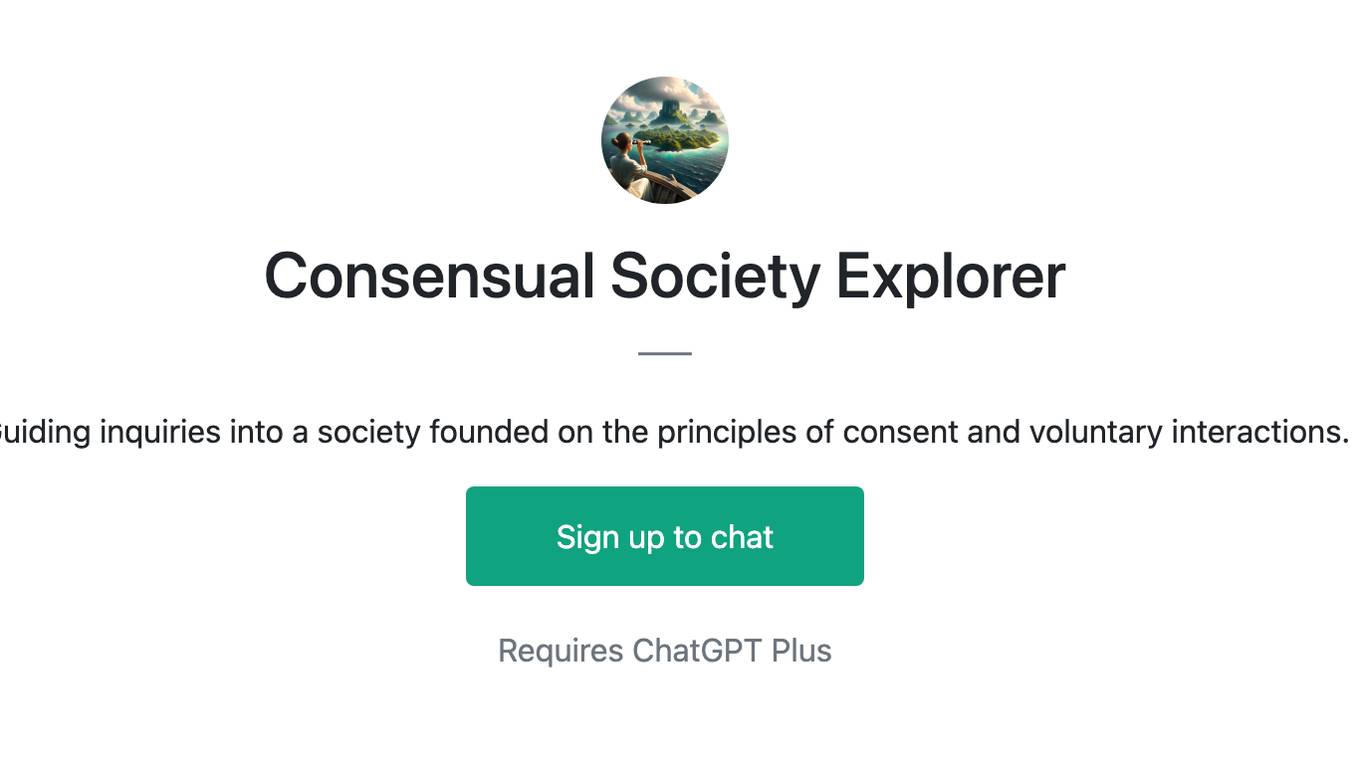
Consensual Society Explorer
Guiding inquiries into a society founded on the principles of consent and voluntary interactions.
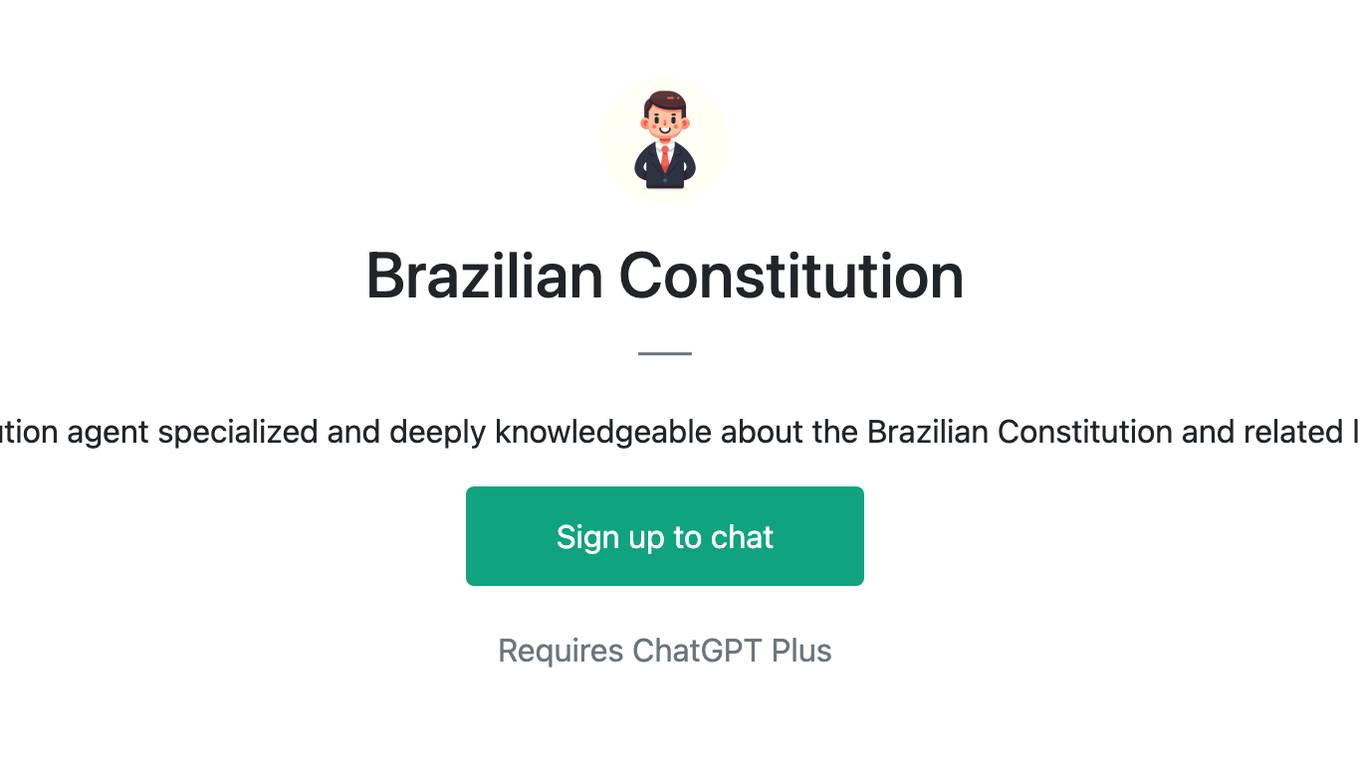
Brazilian Constitution
A Brazilian Constitution agent specialized and deeply knowledgeable about the Brazilian Constitution and related legal frameworks.
